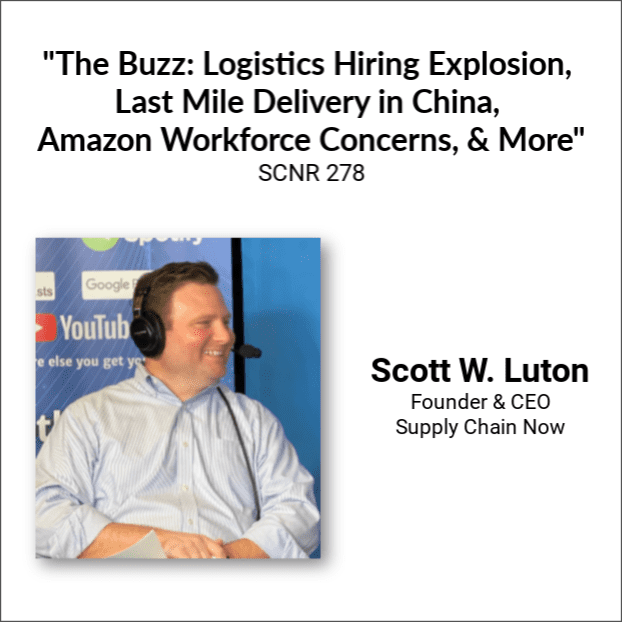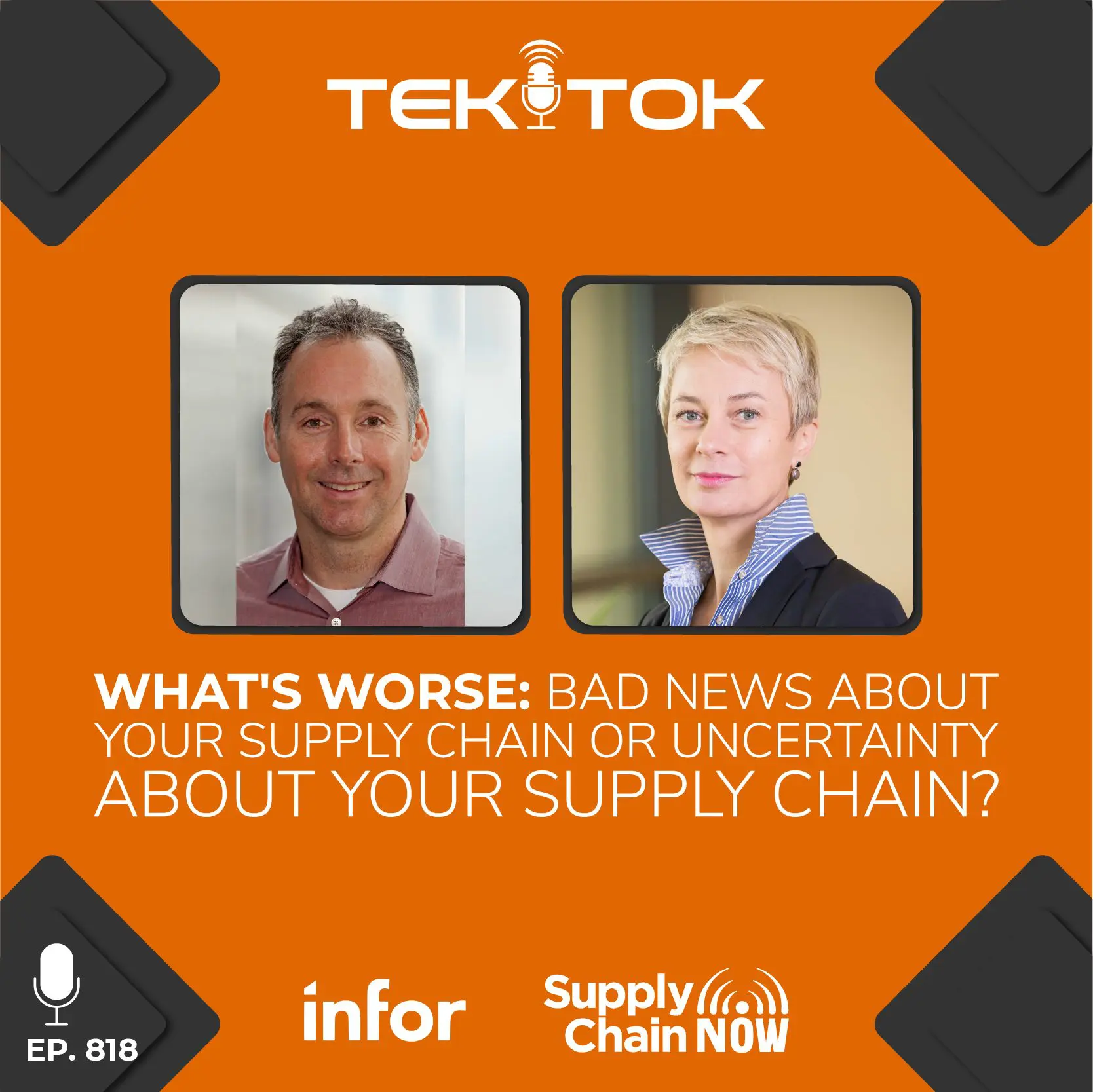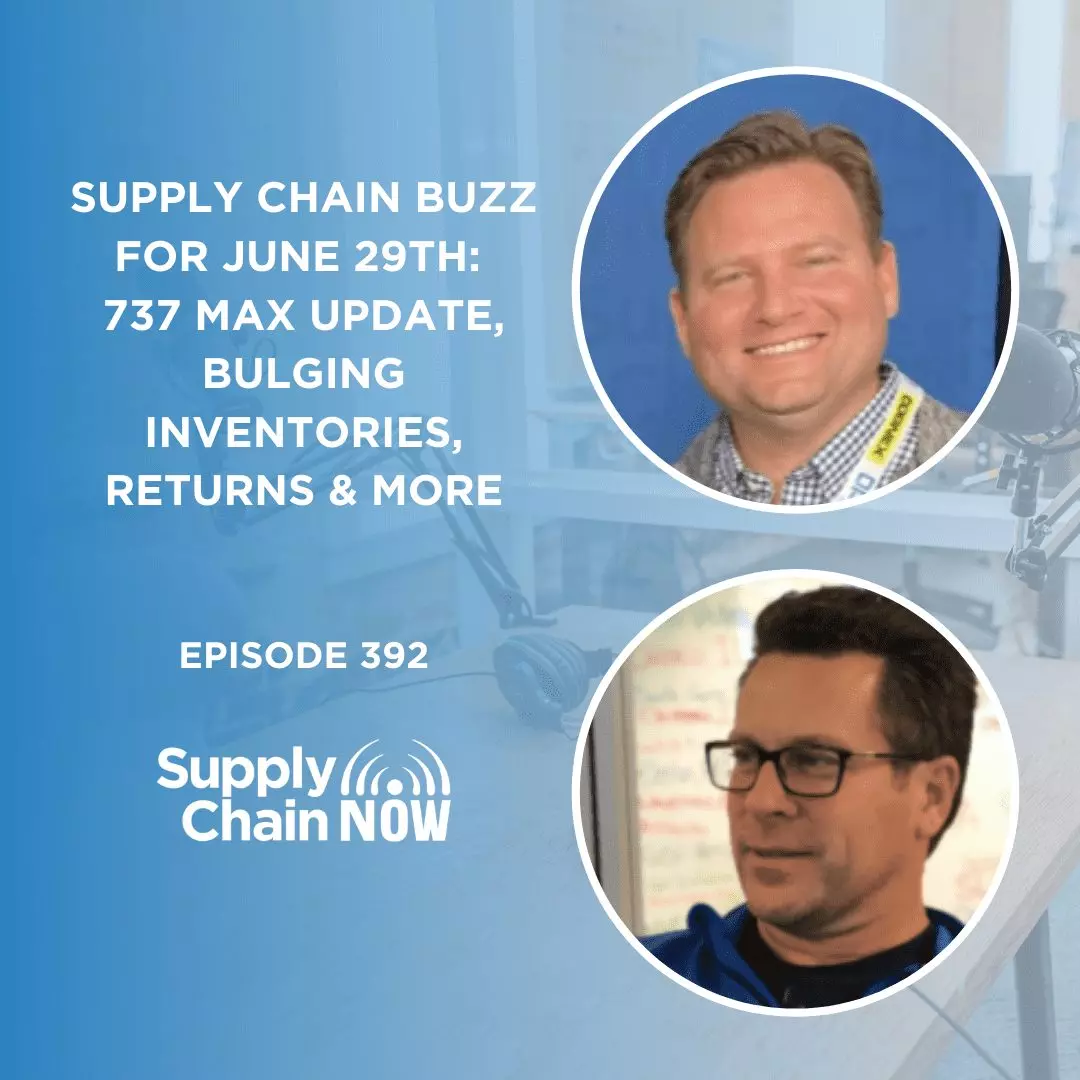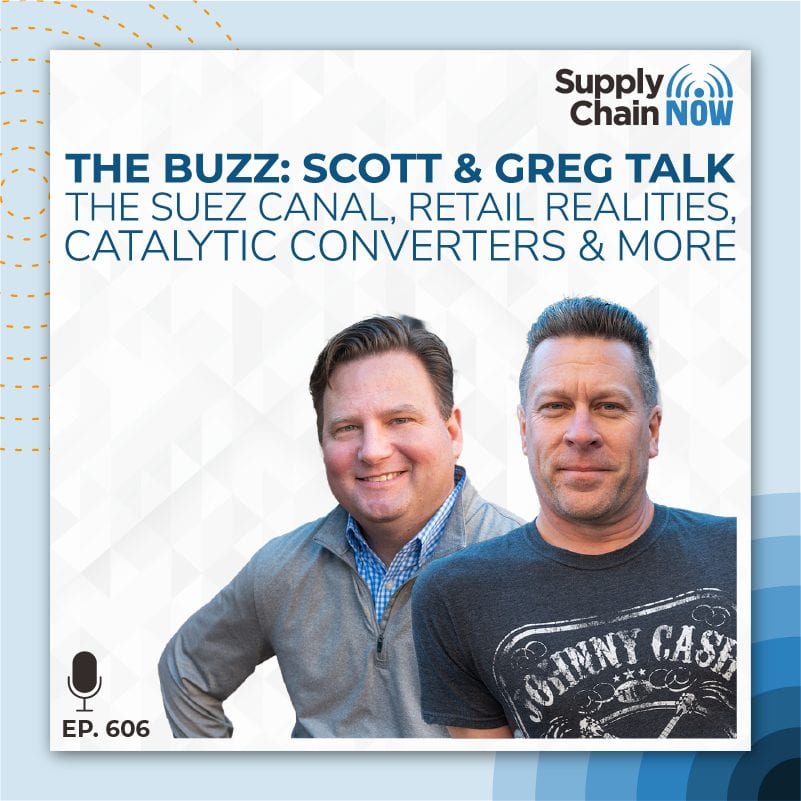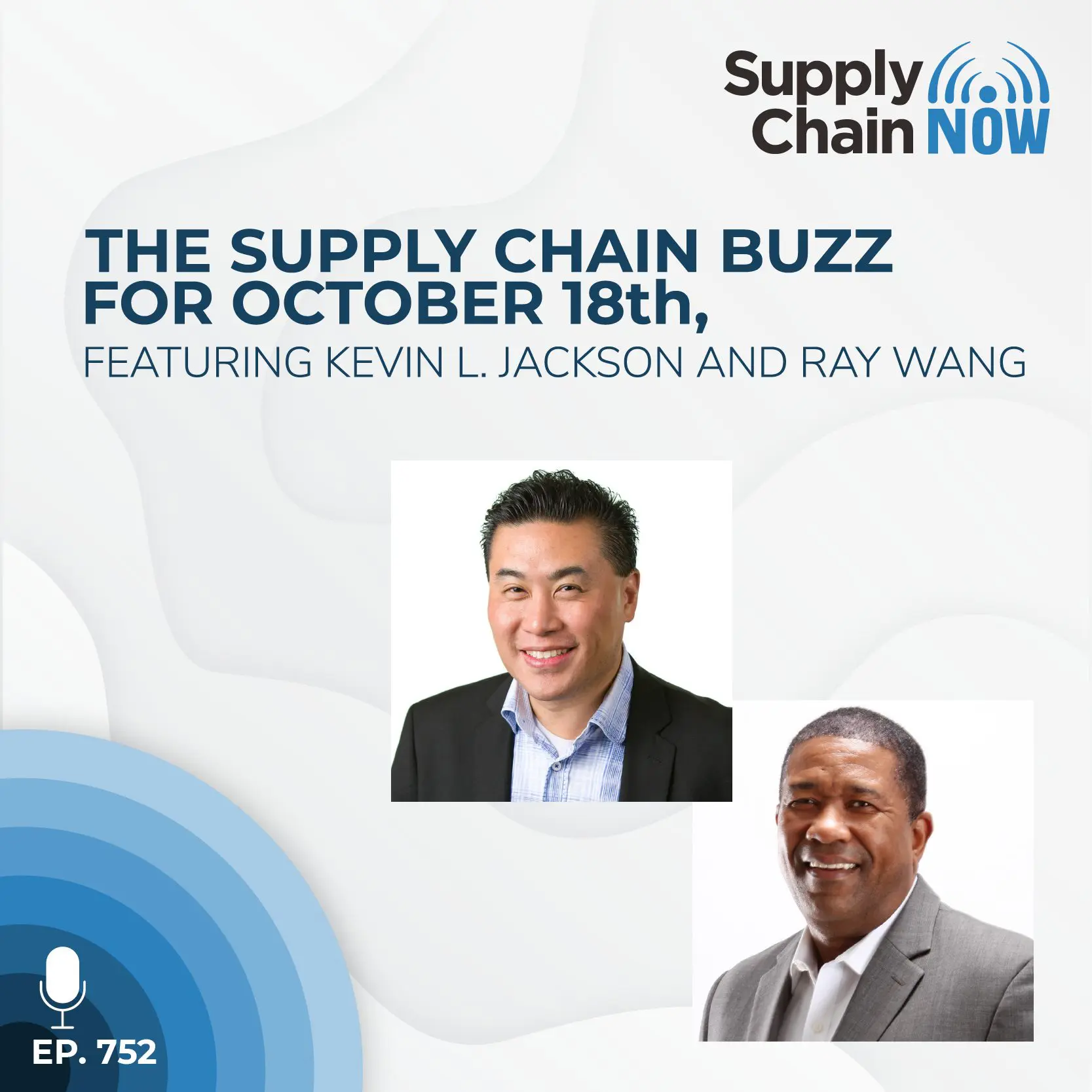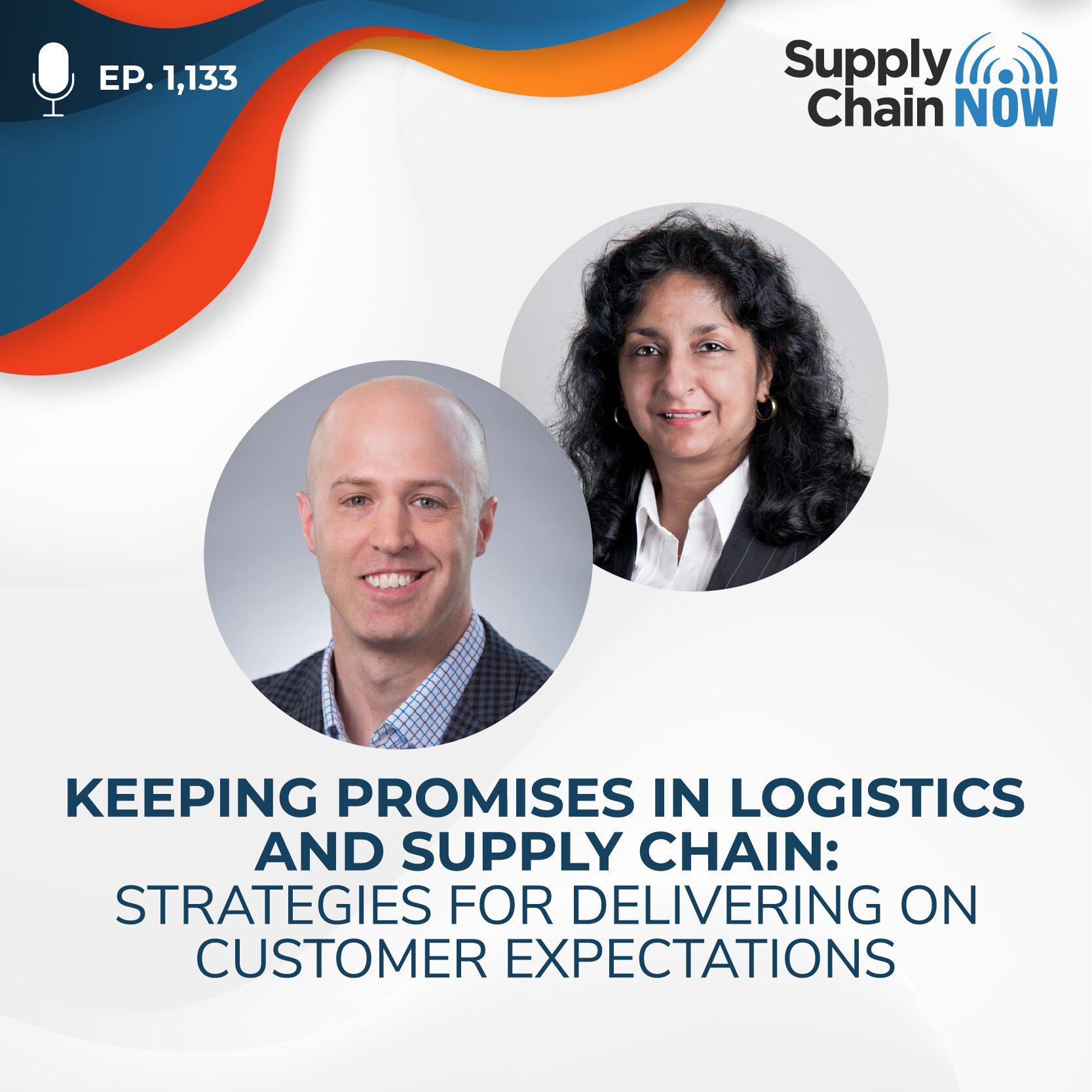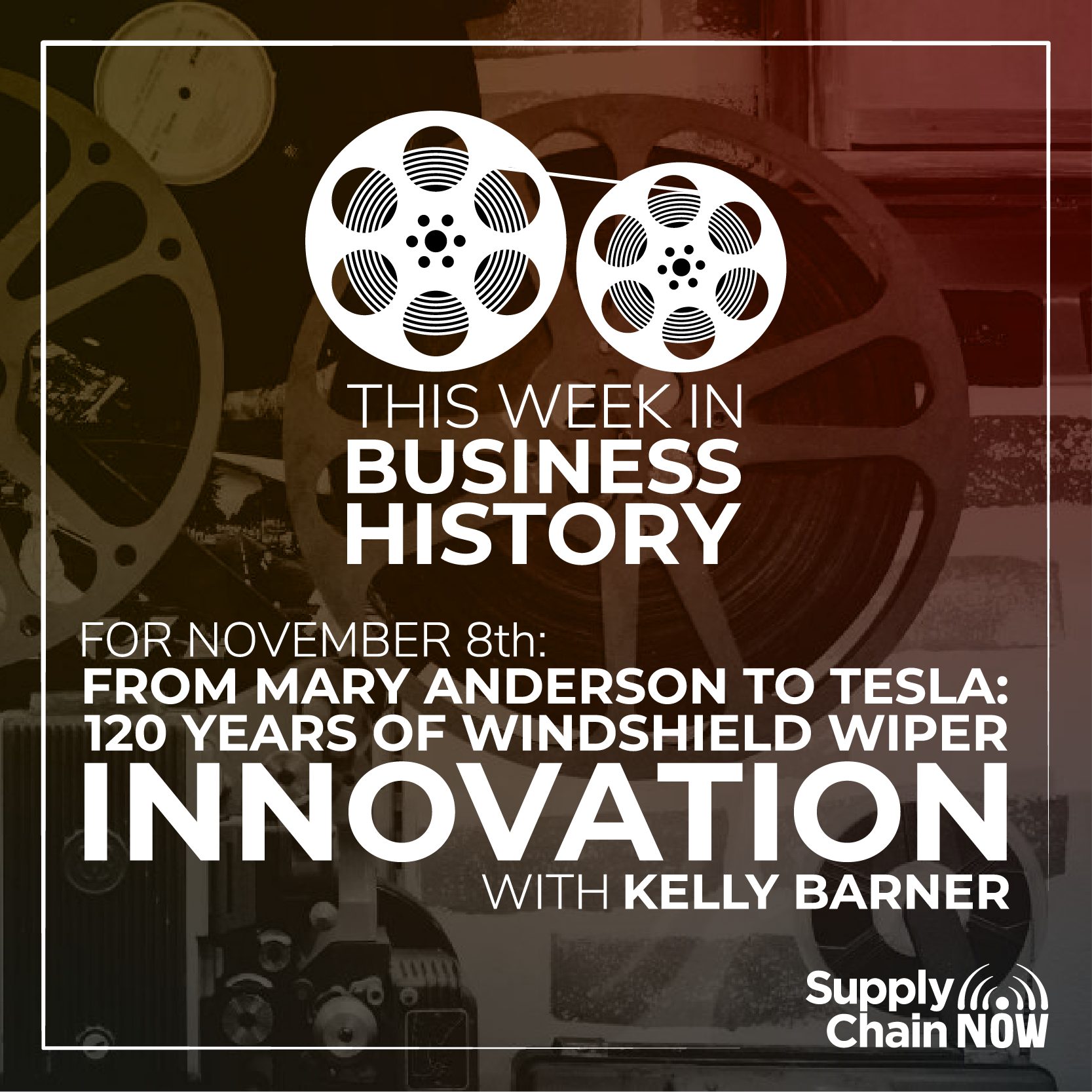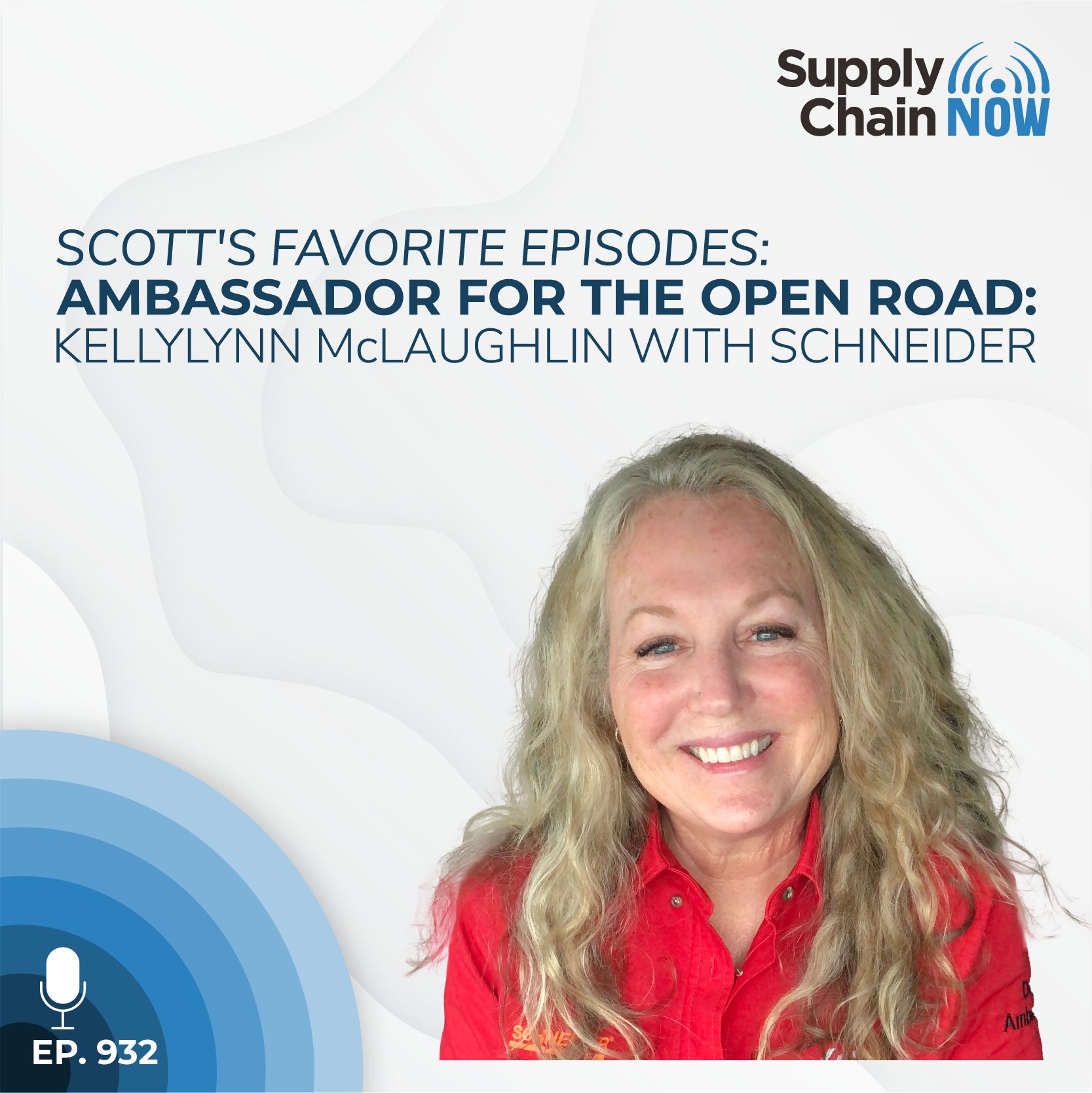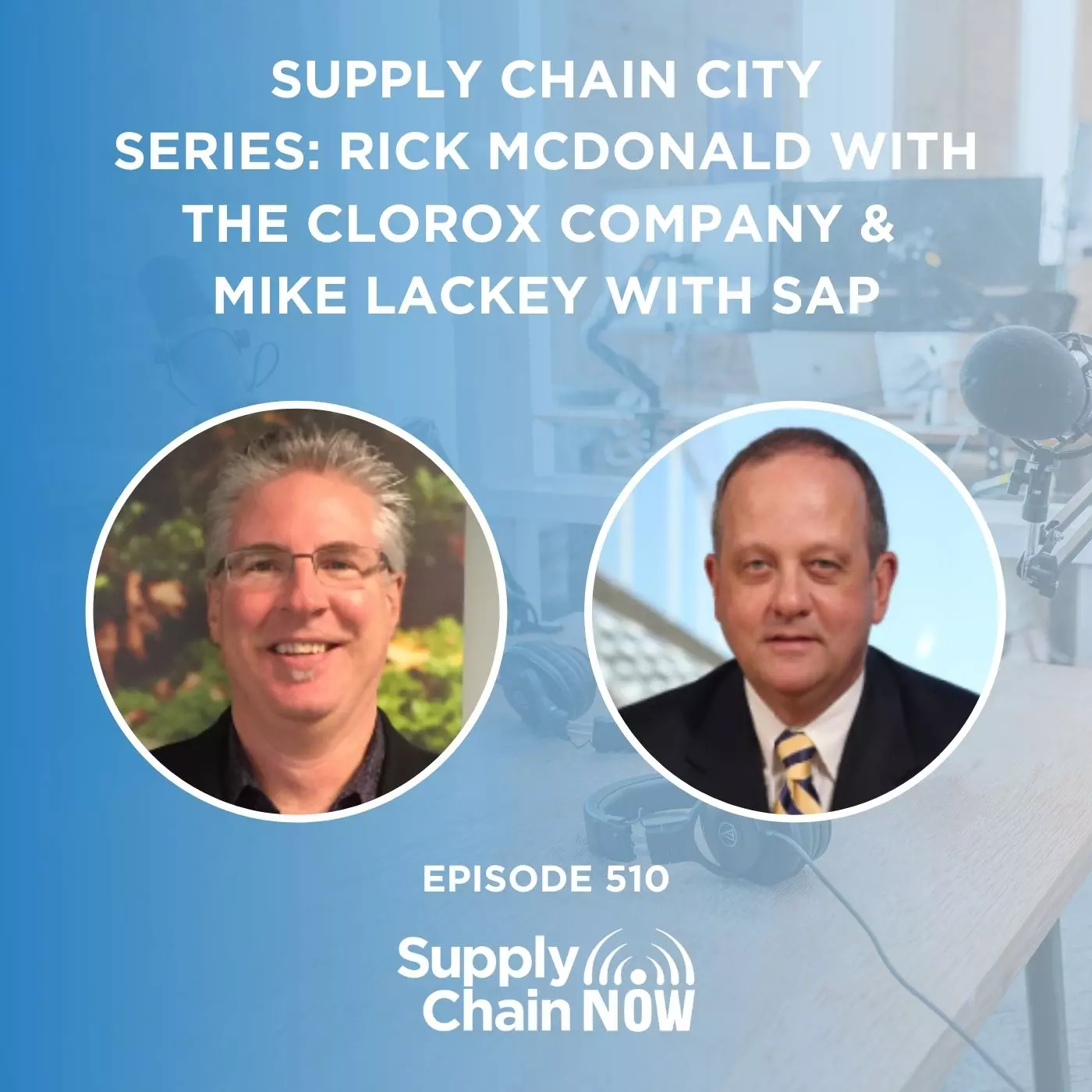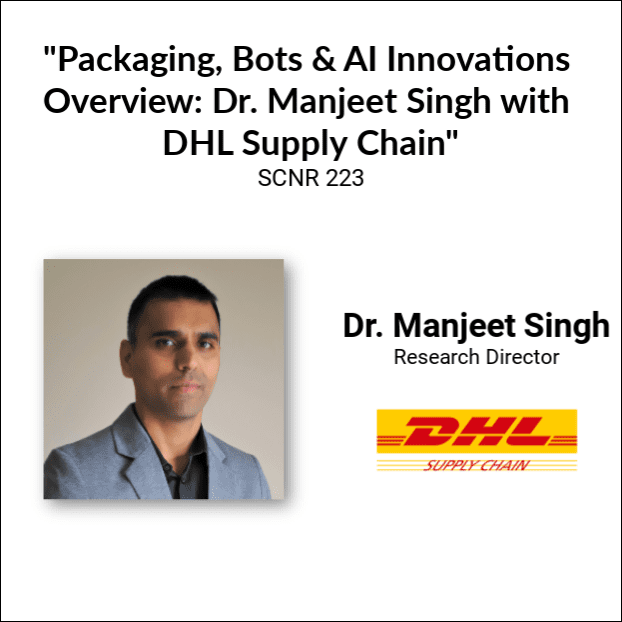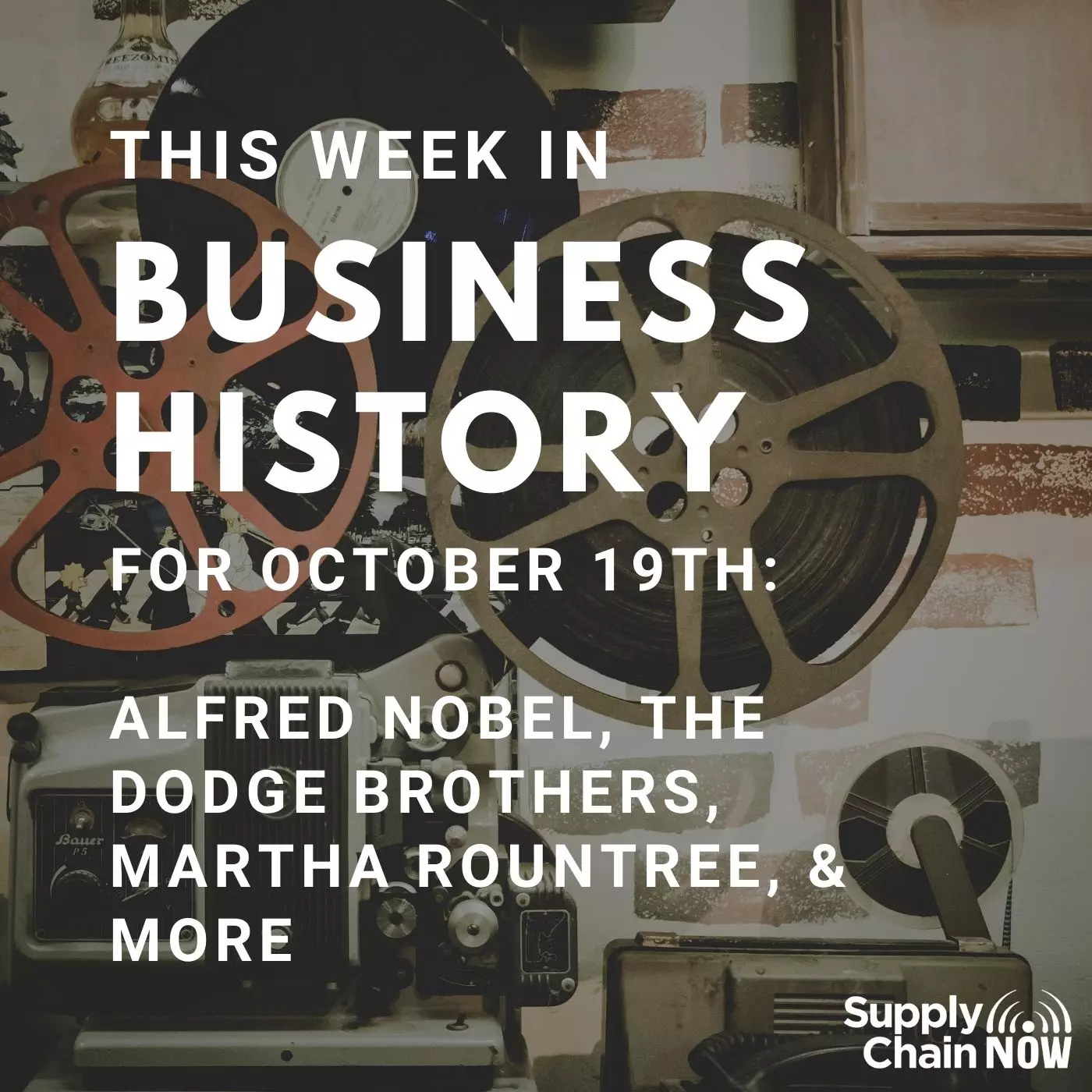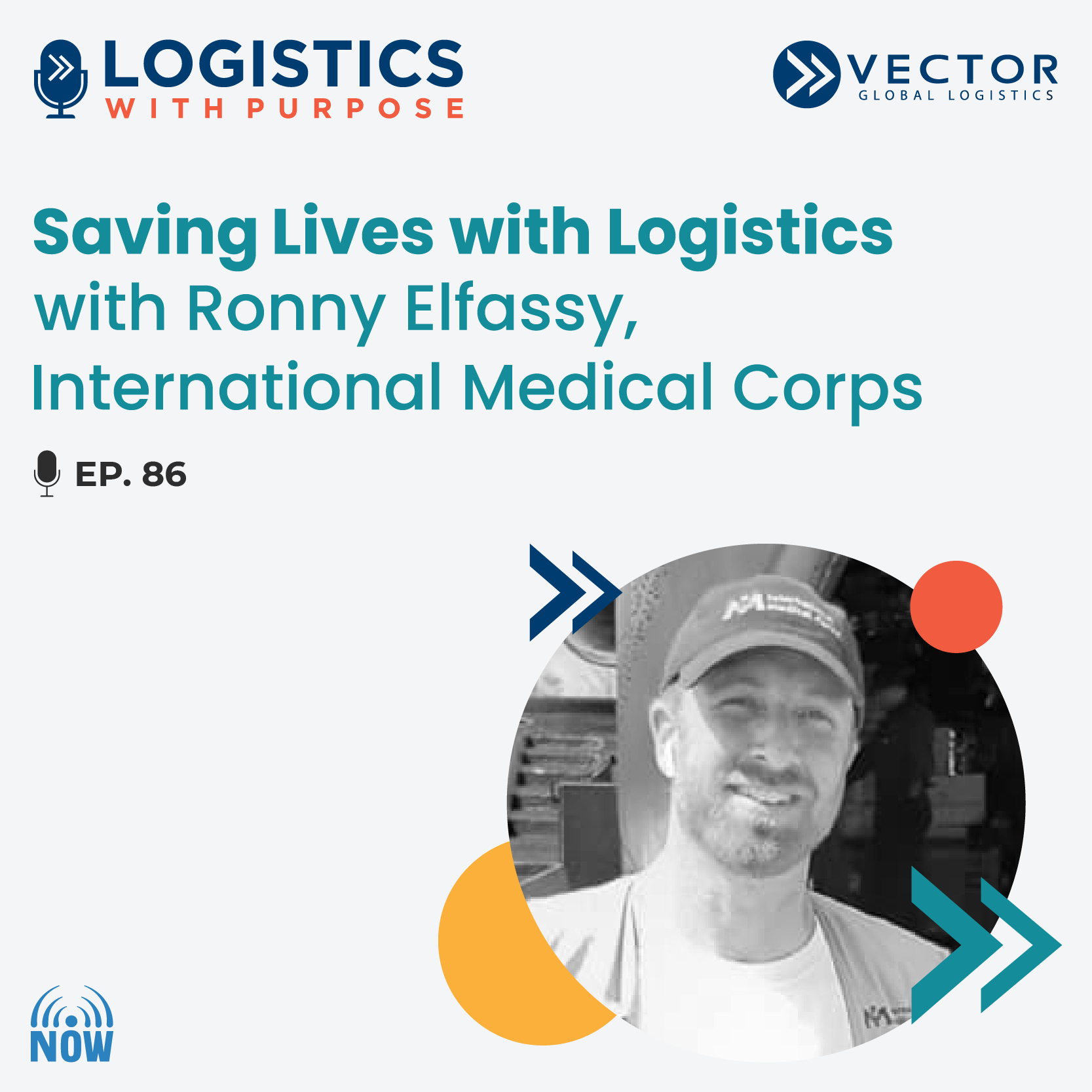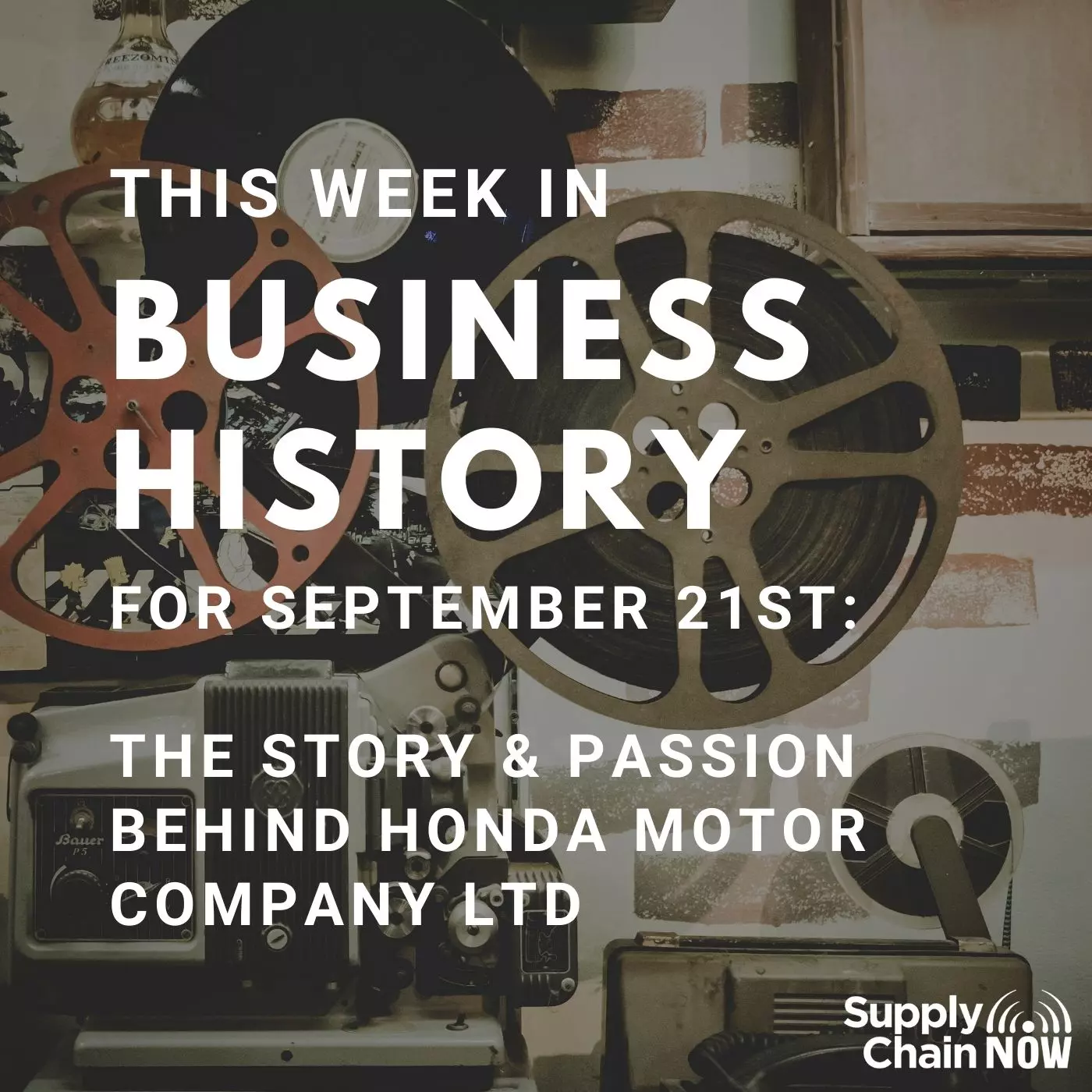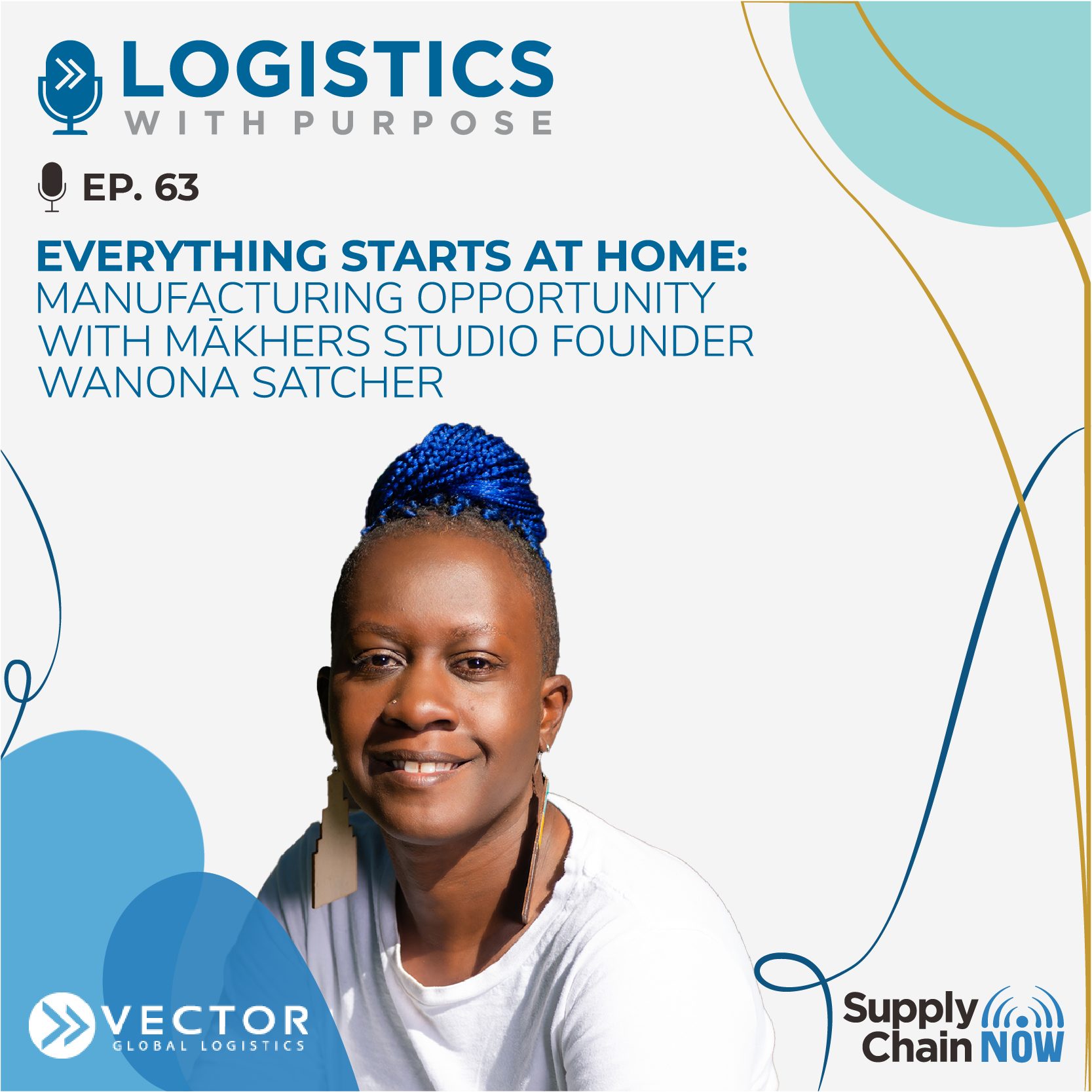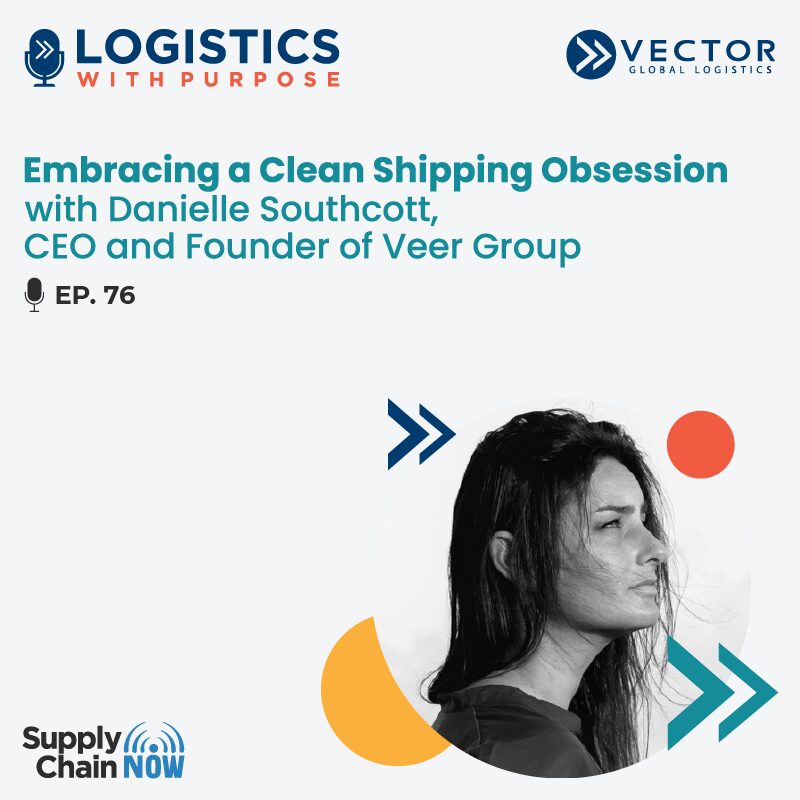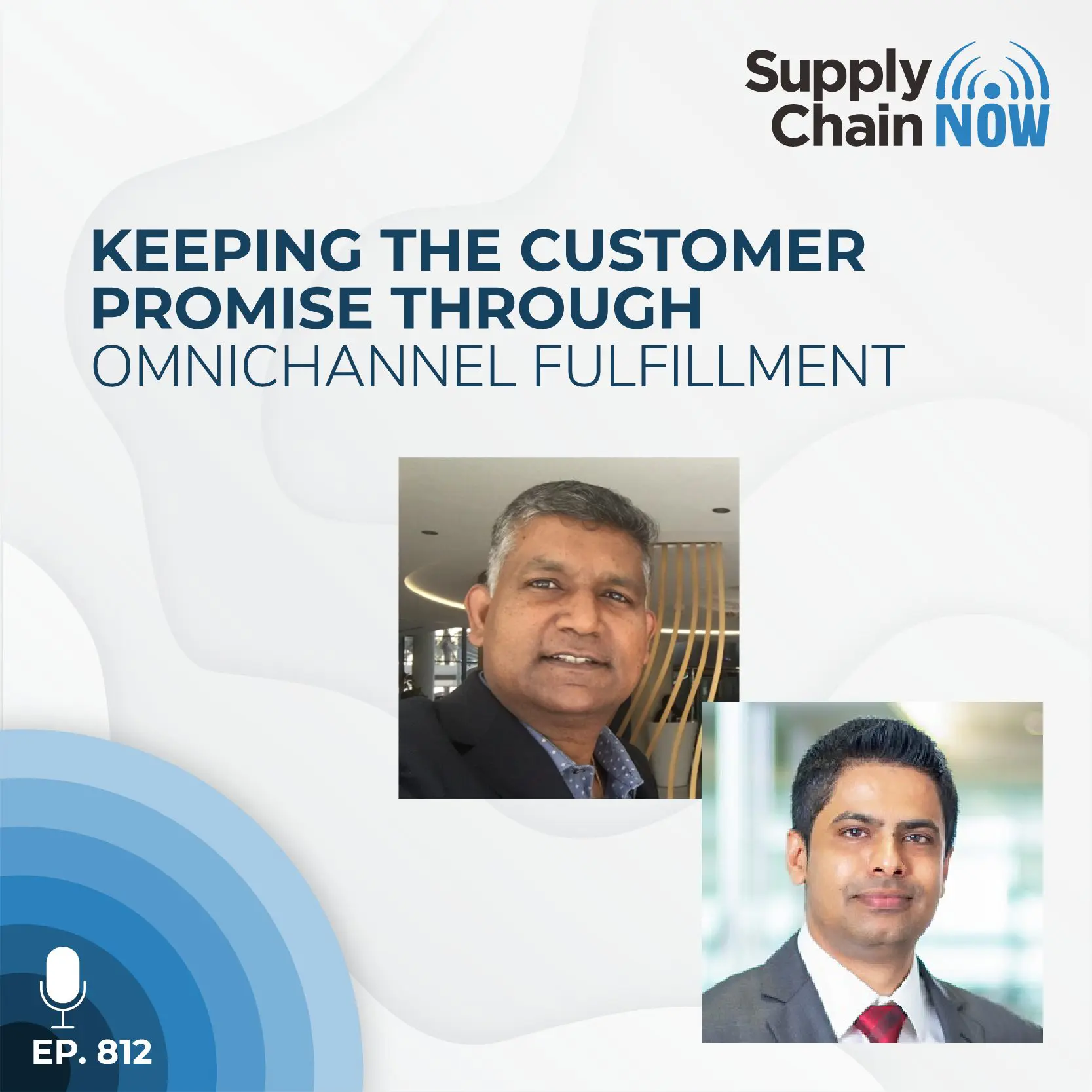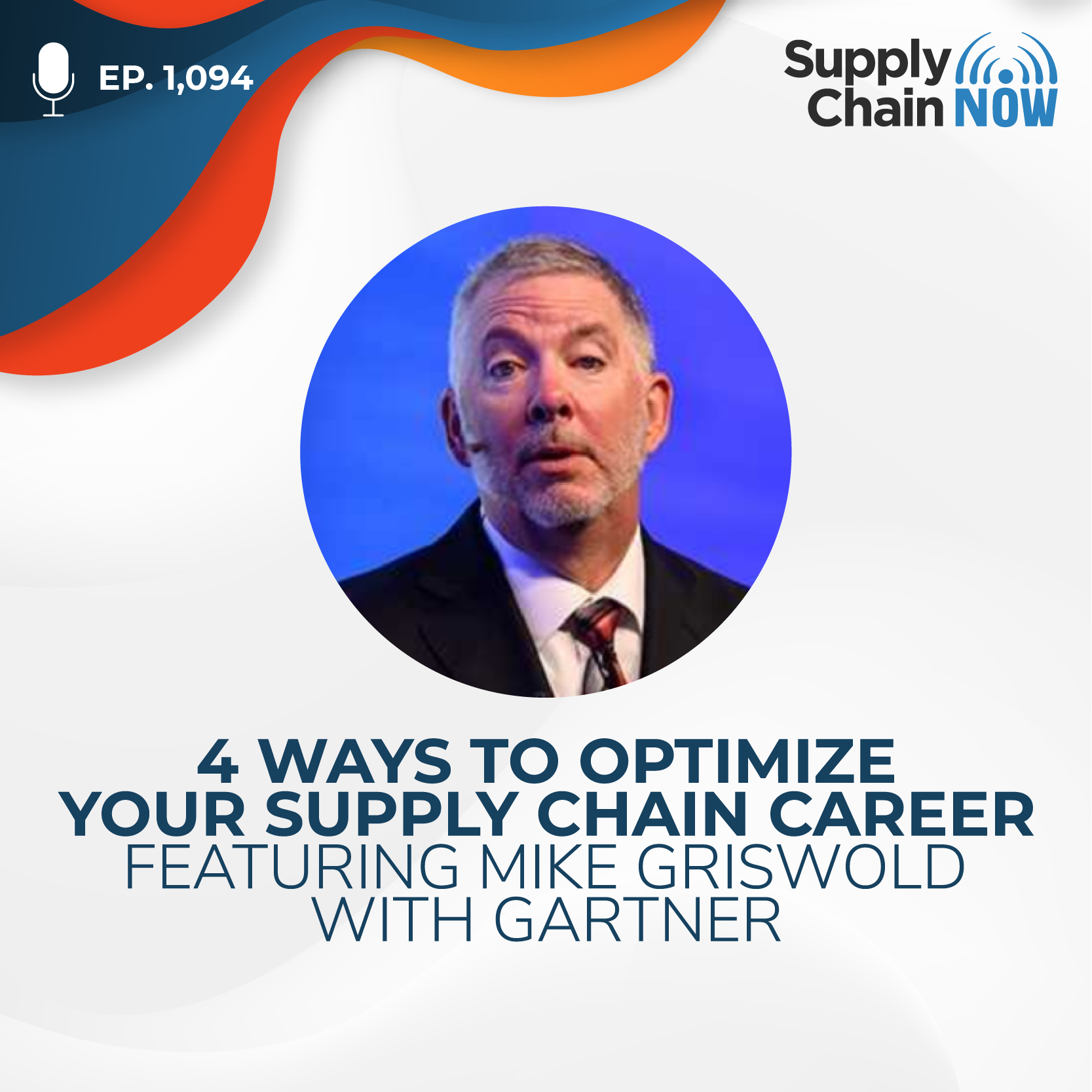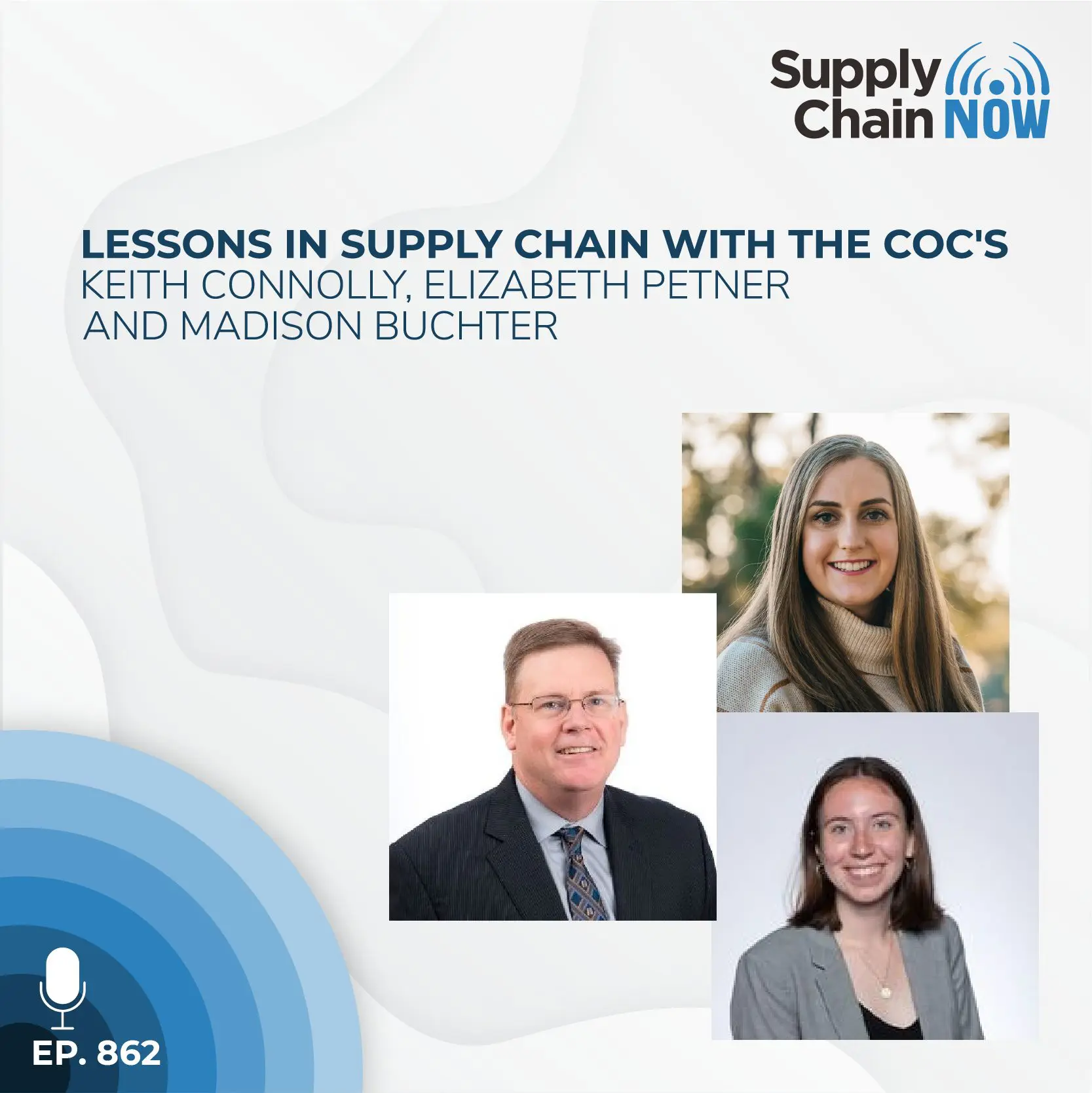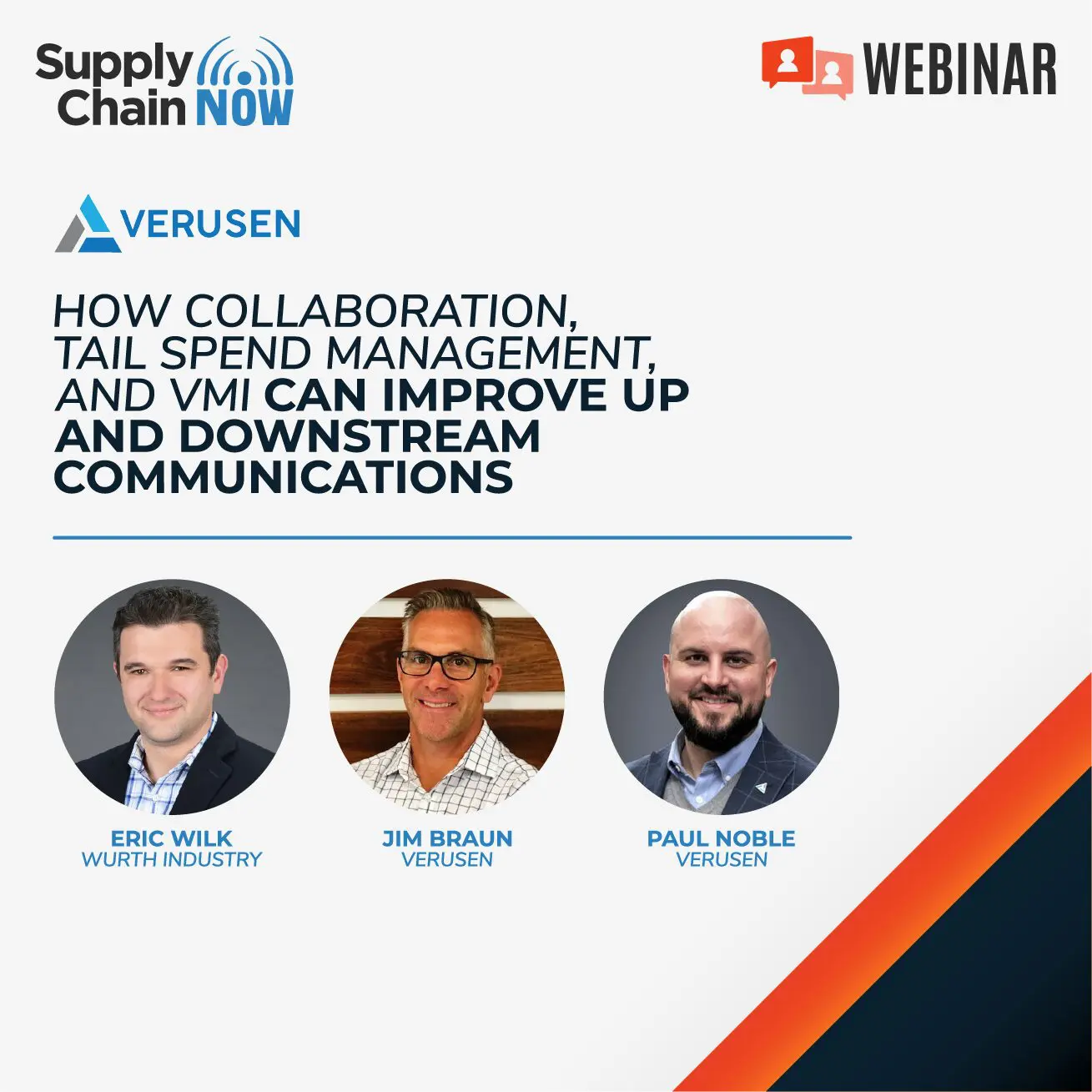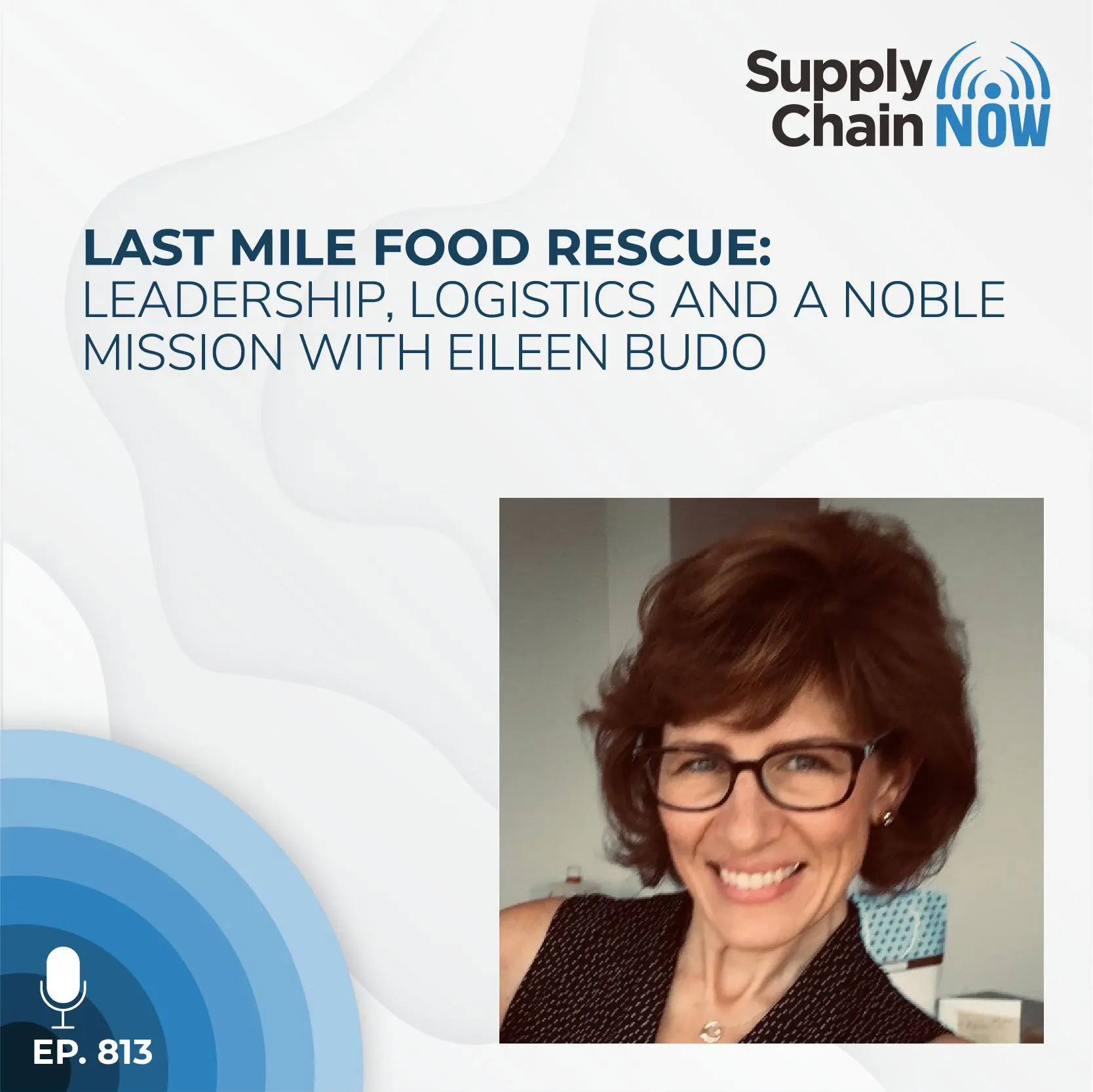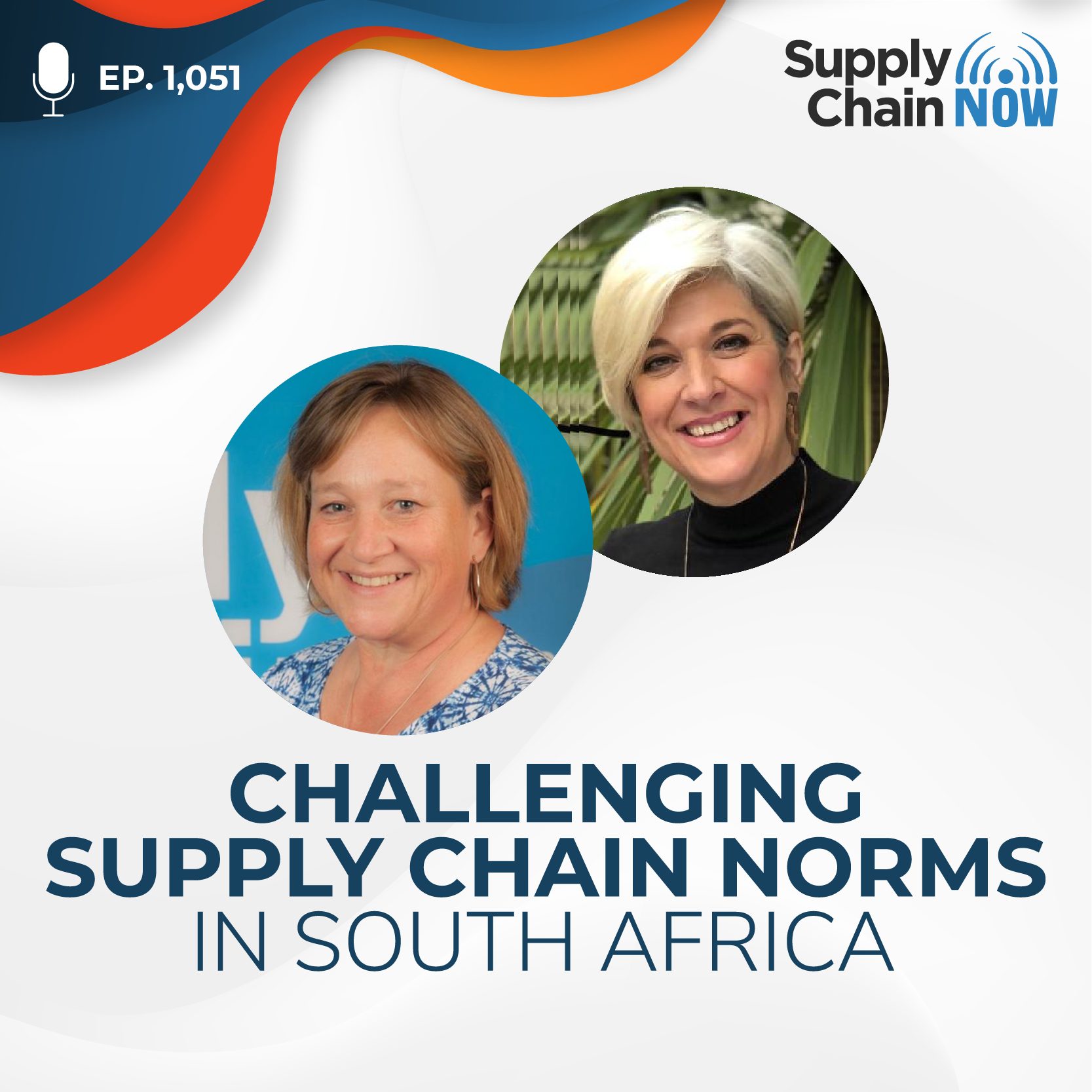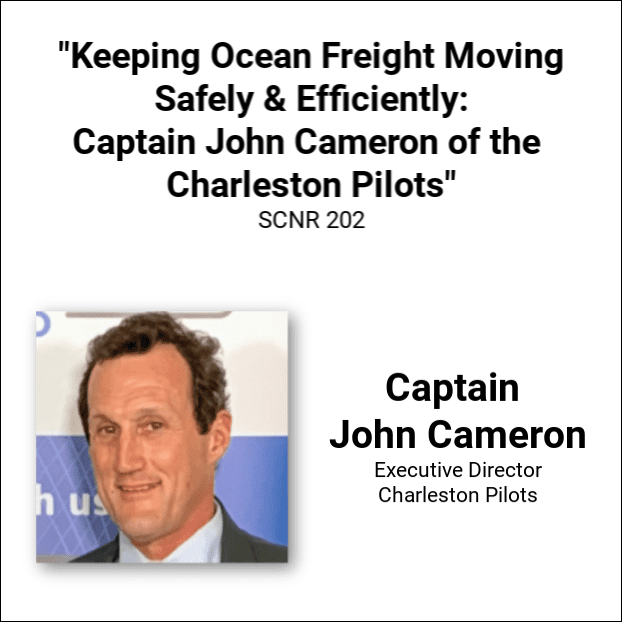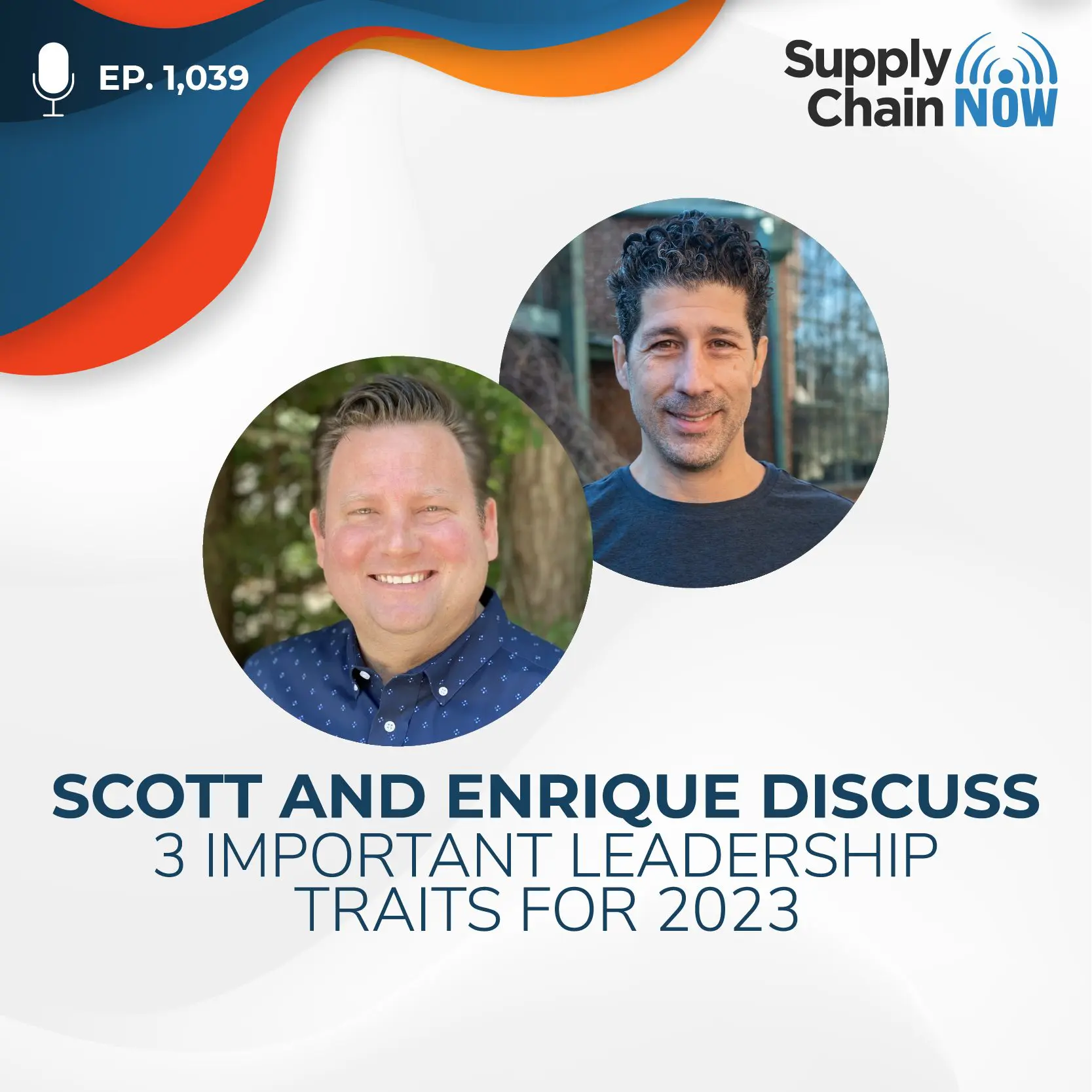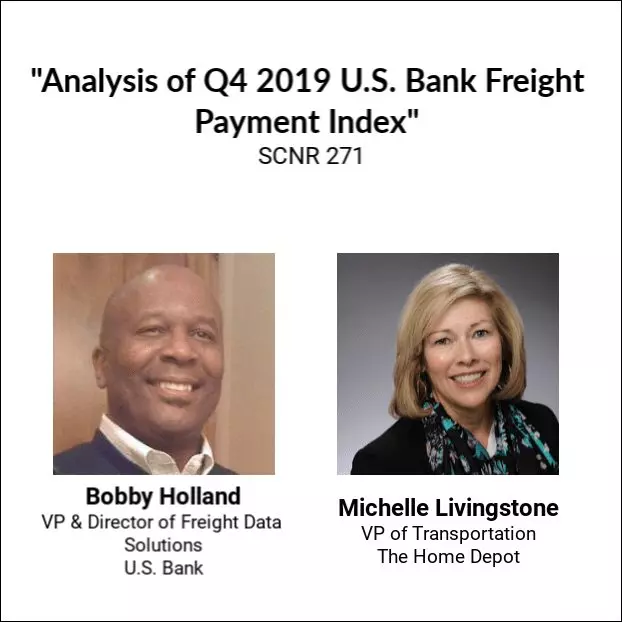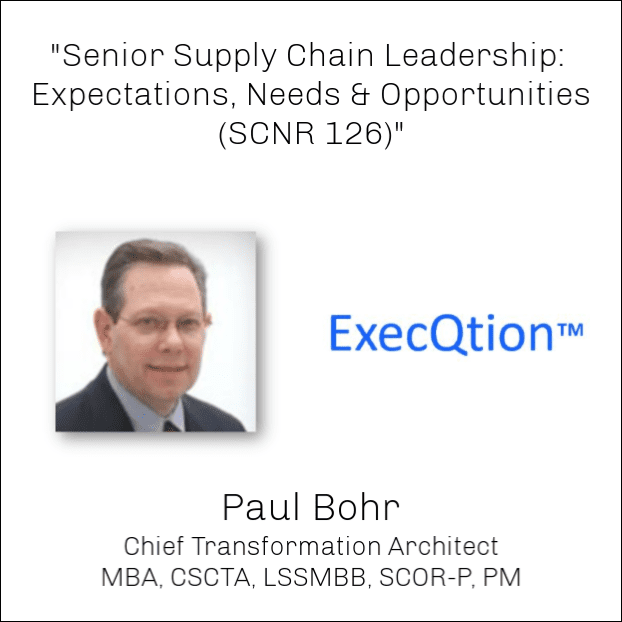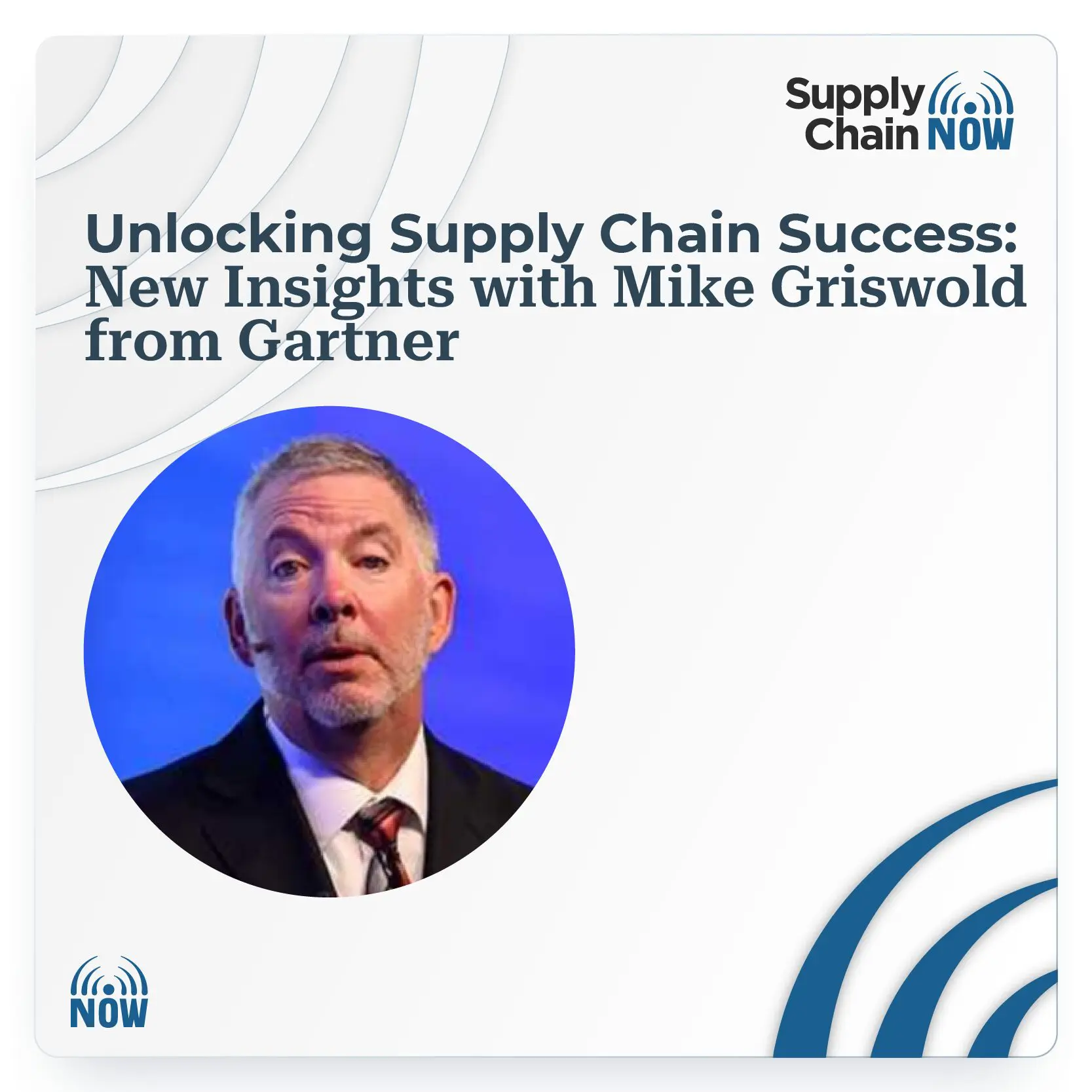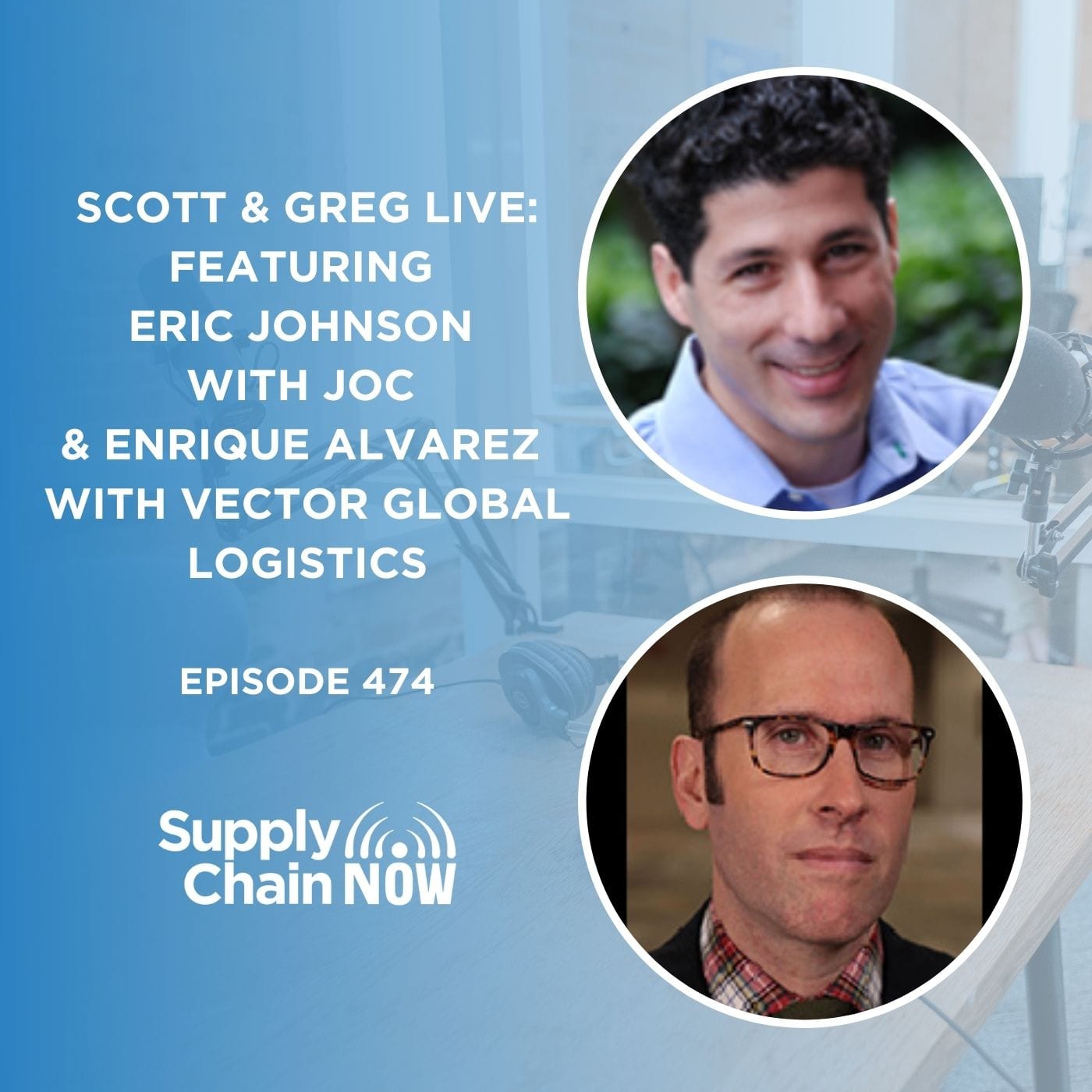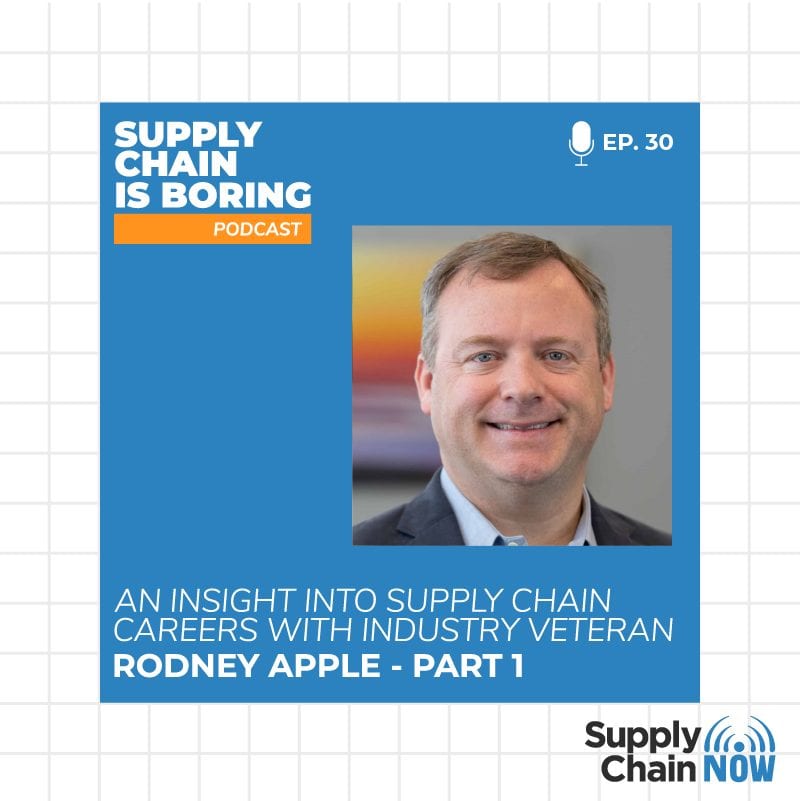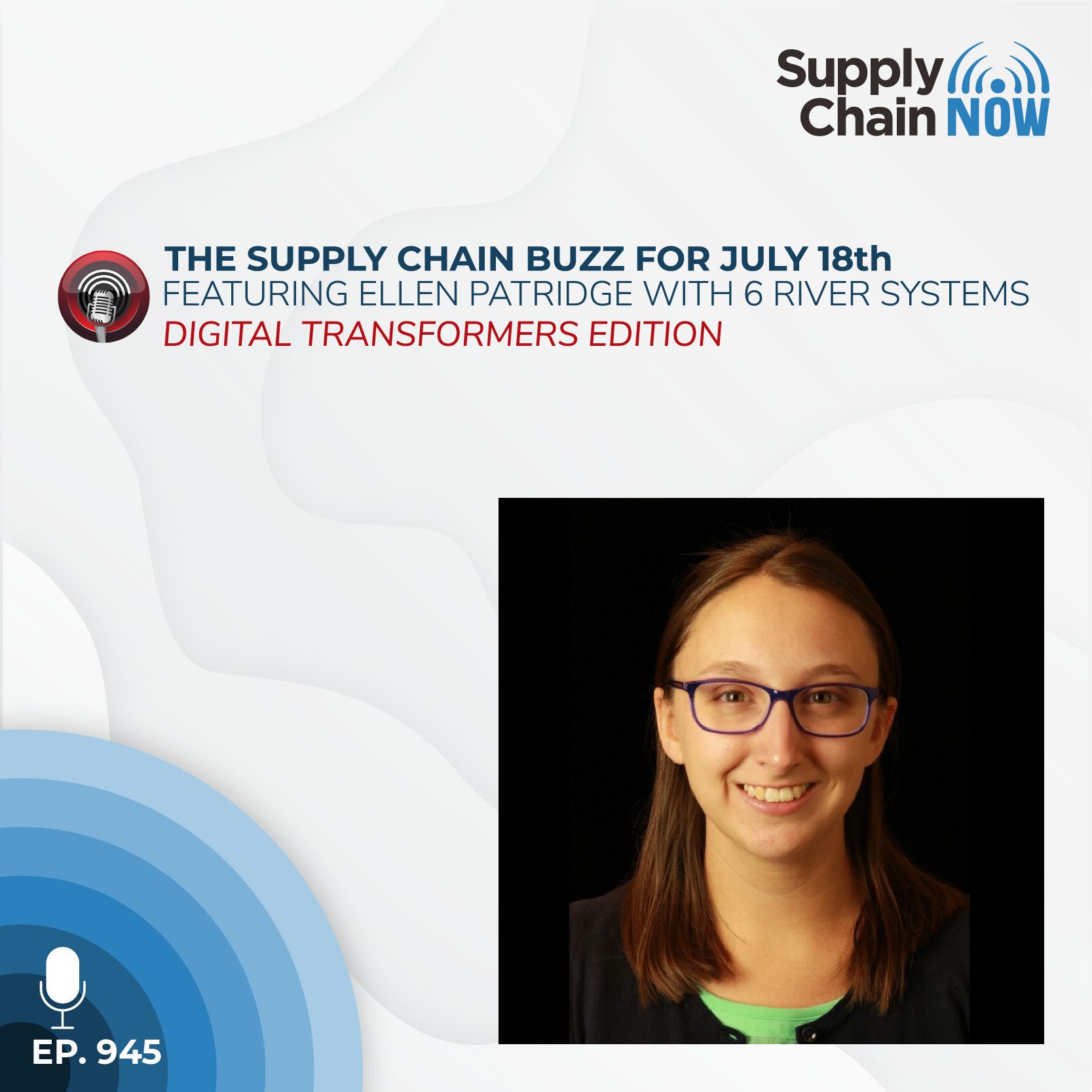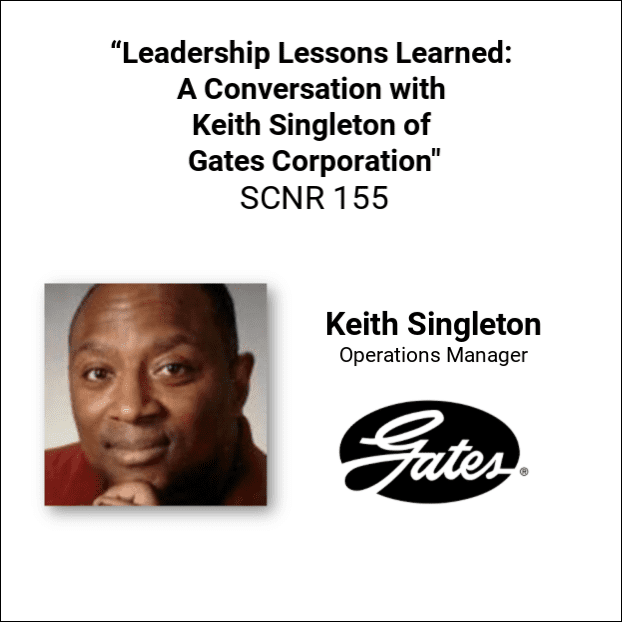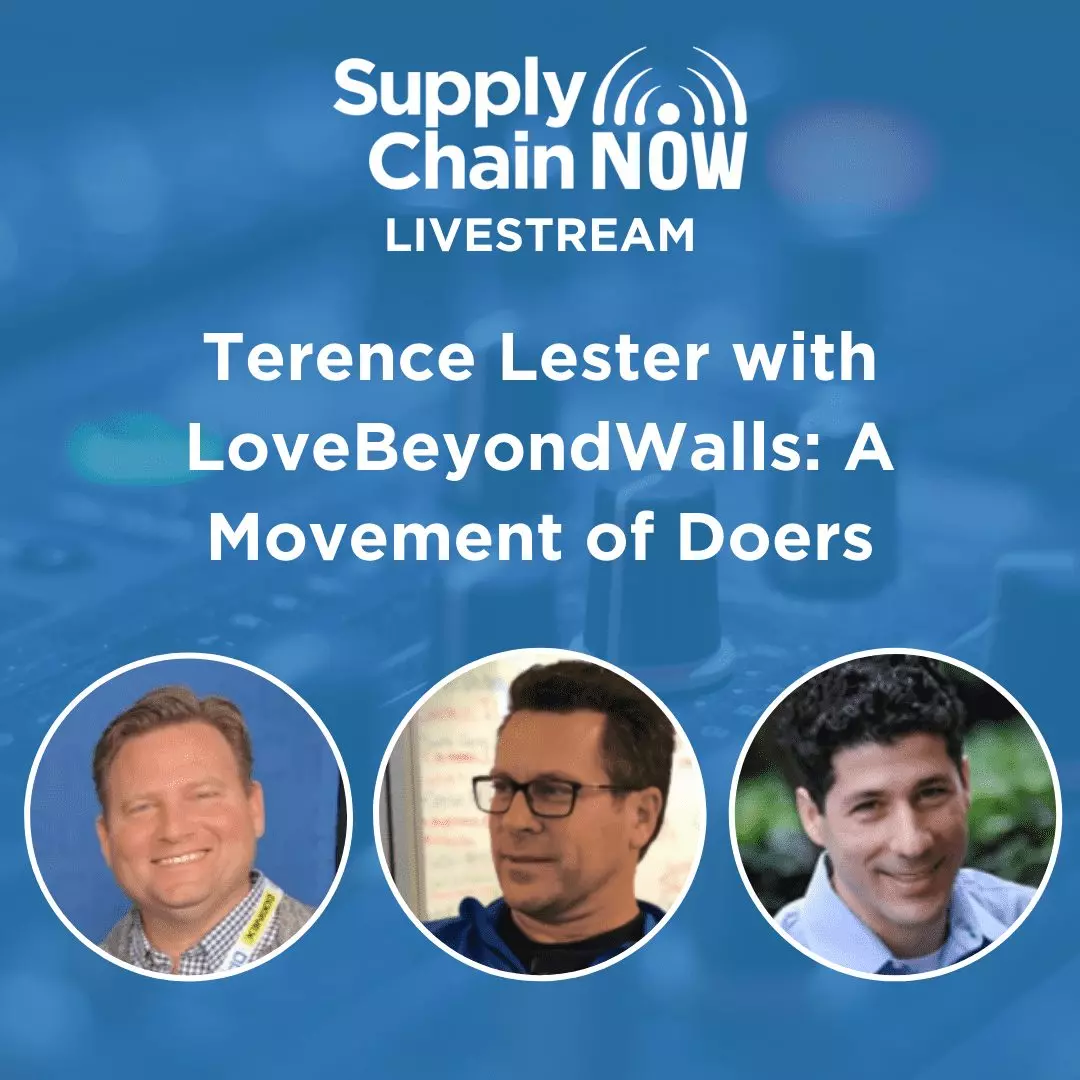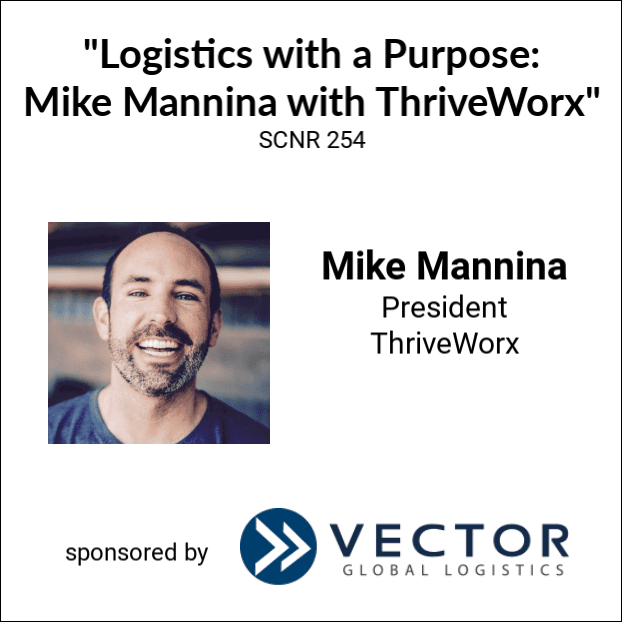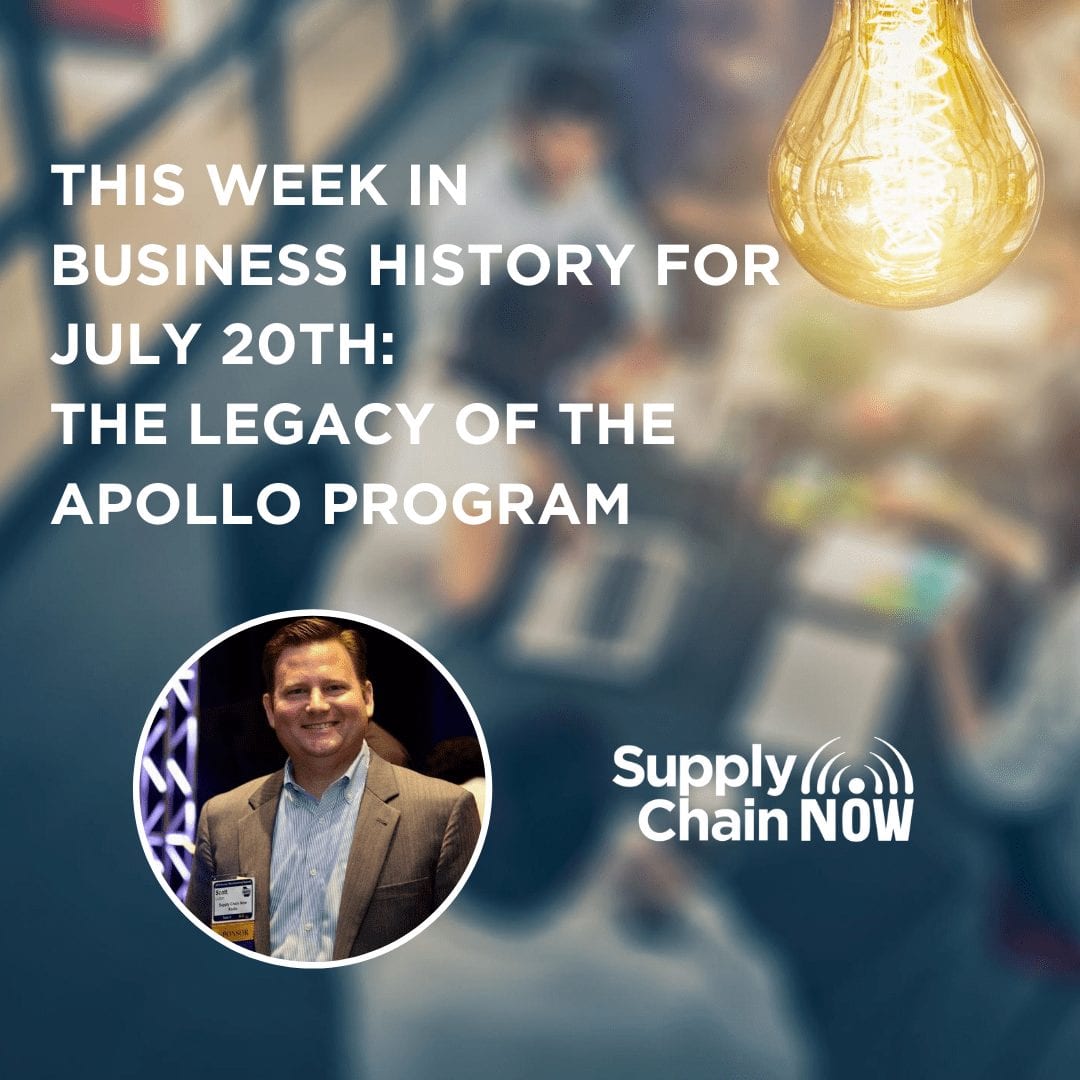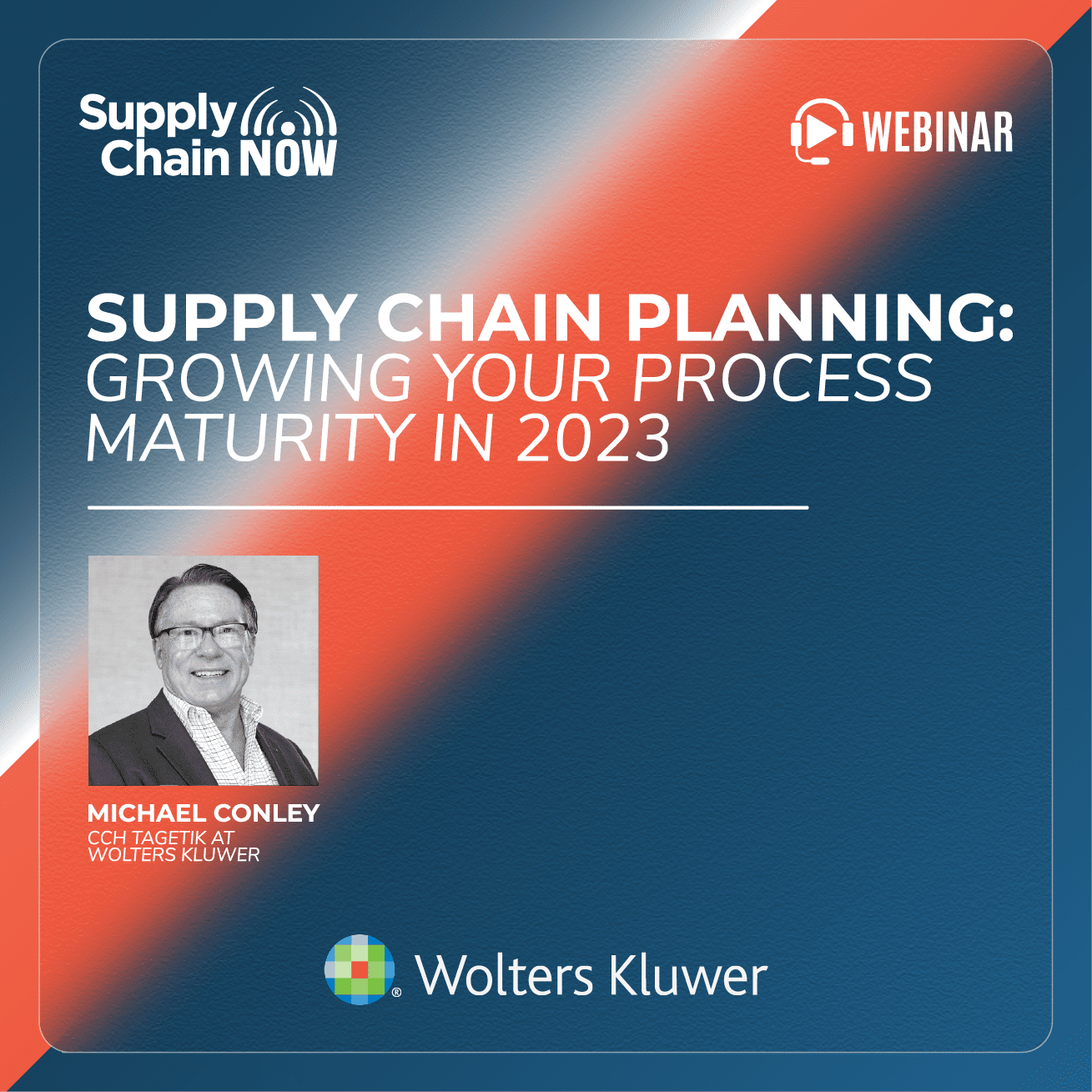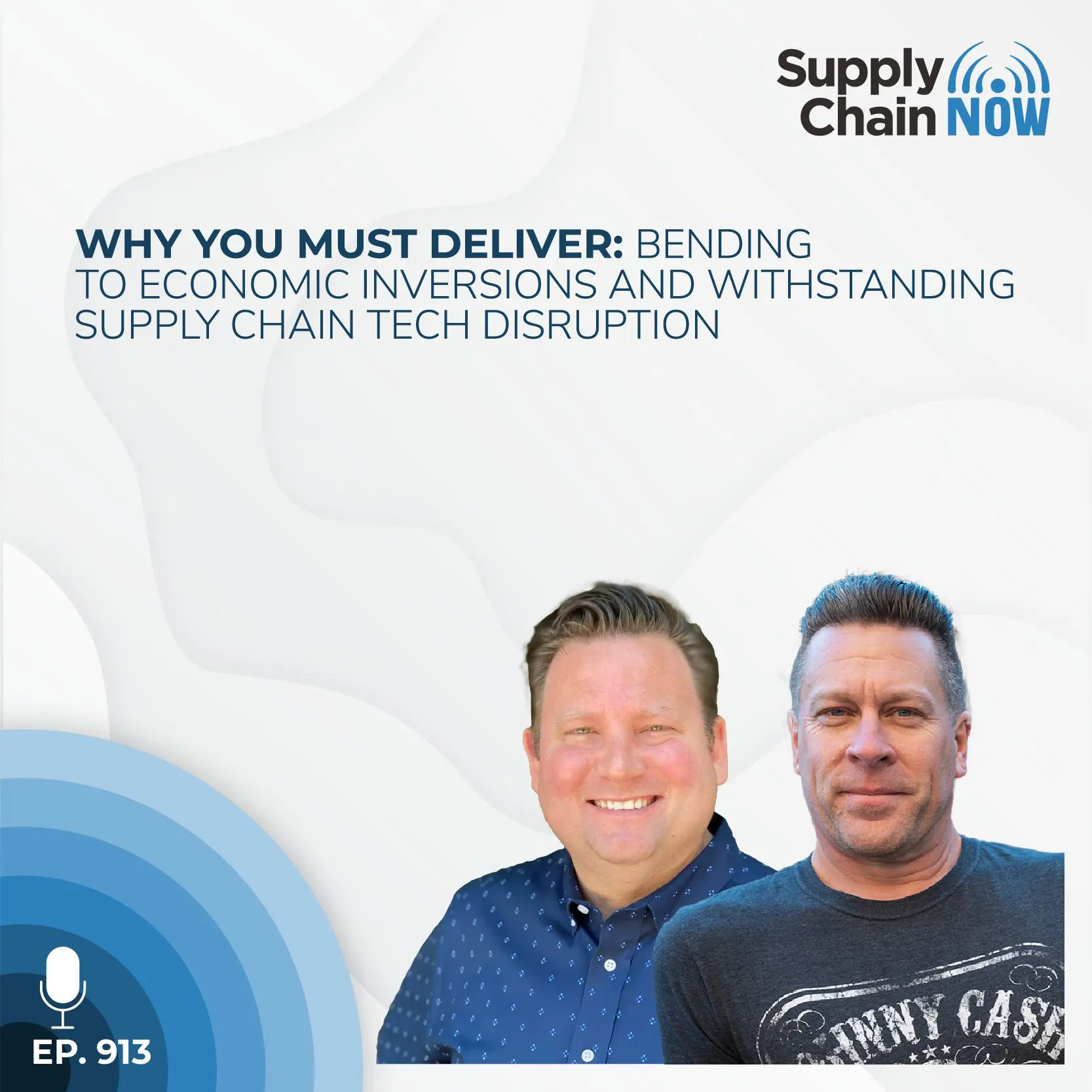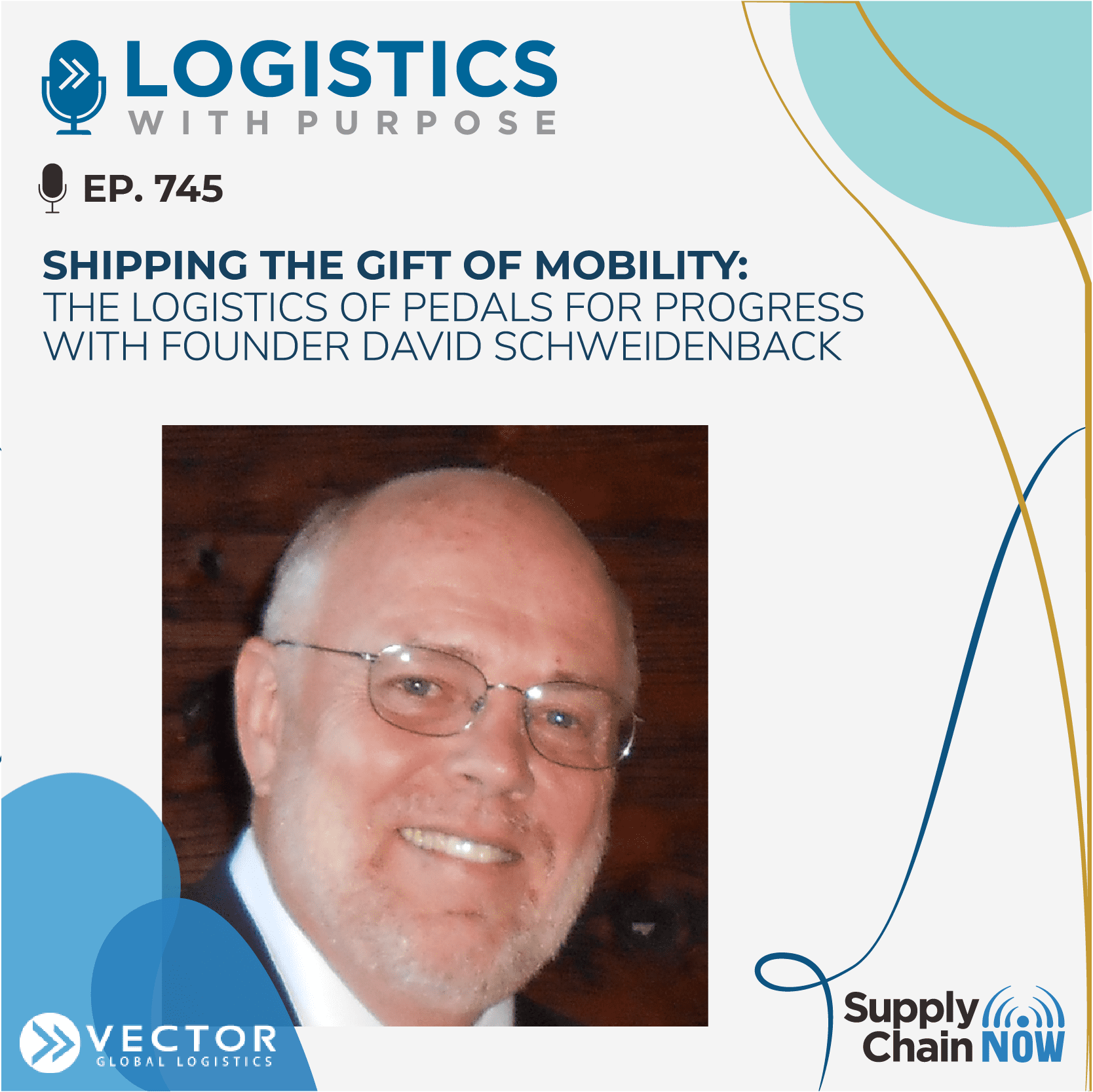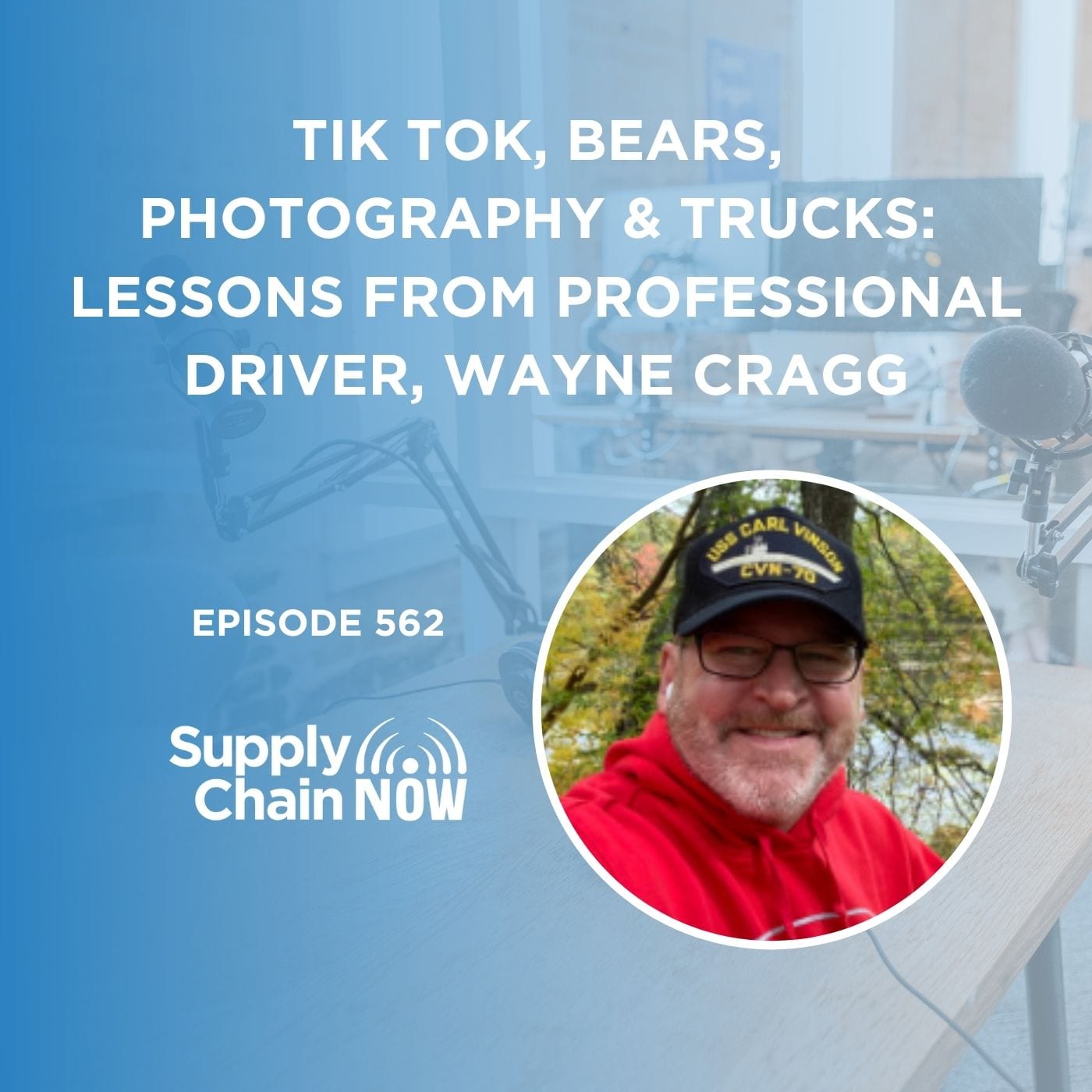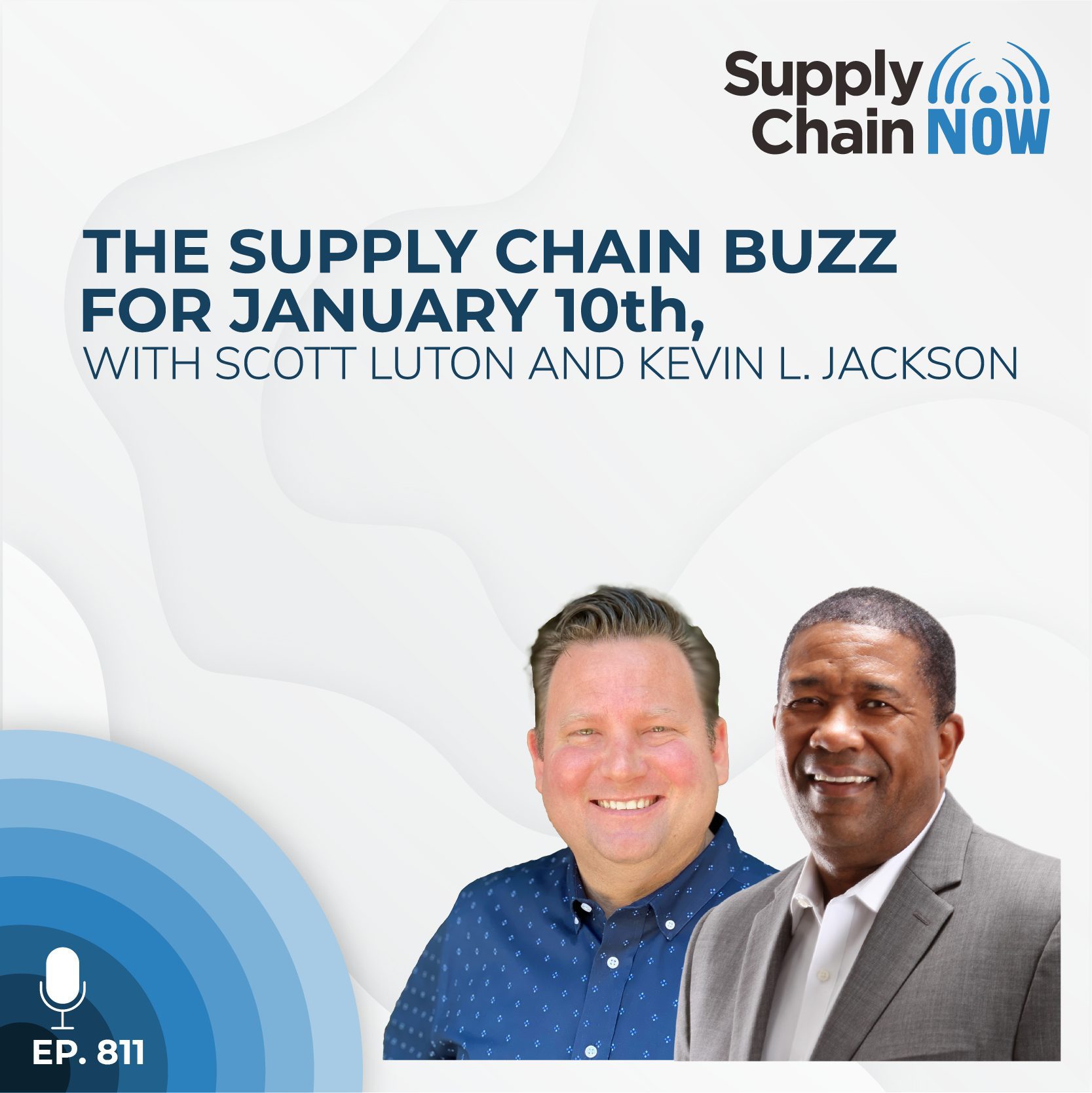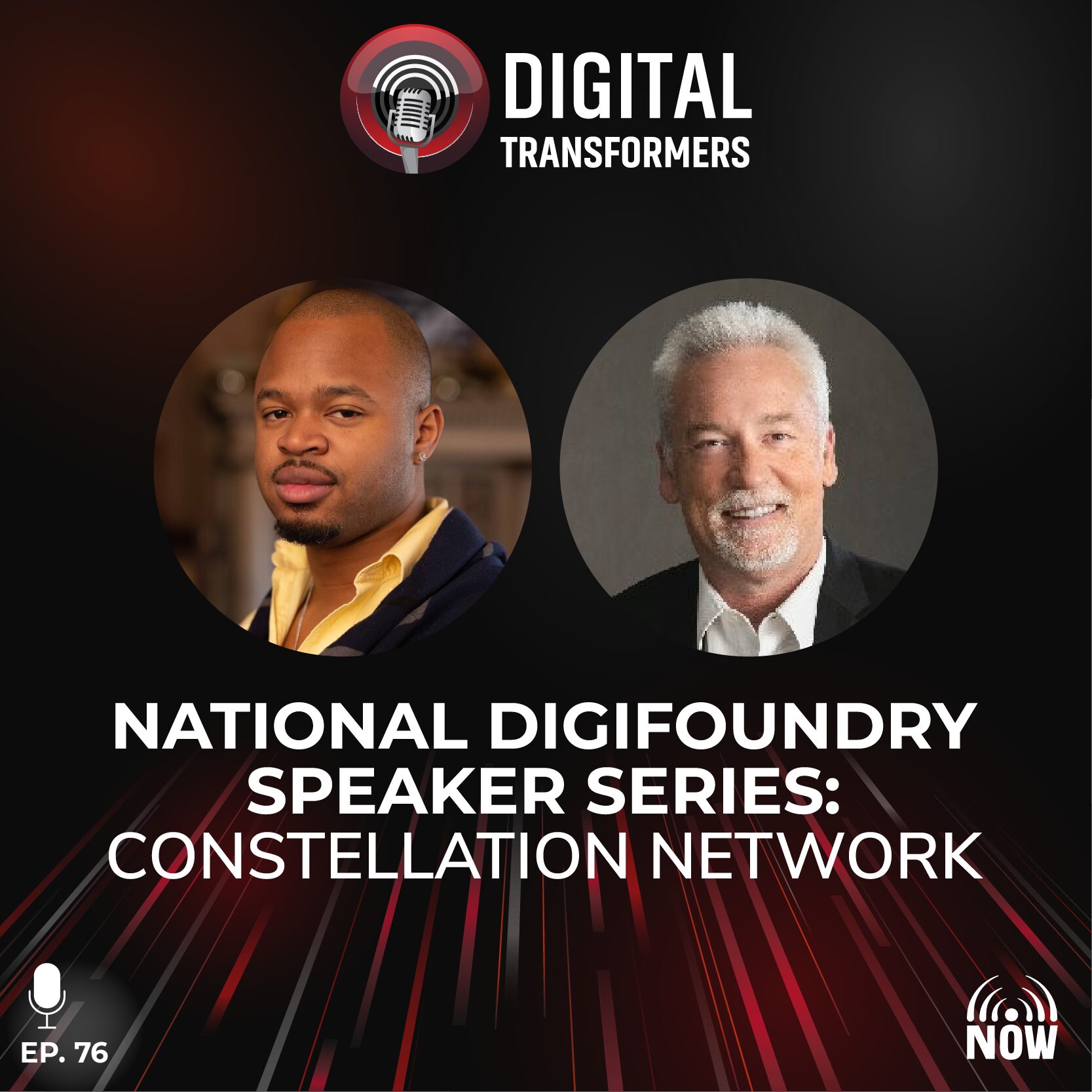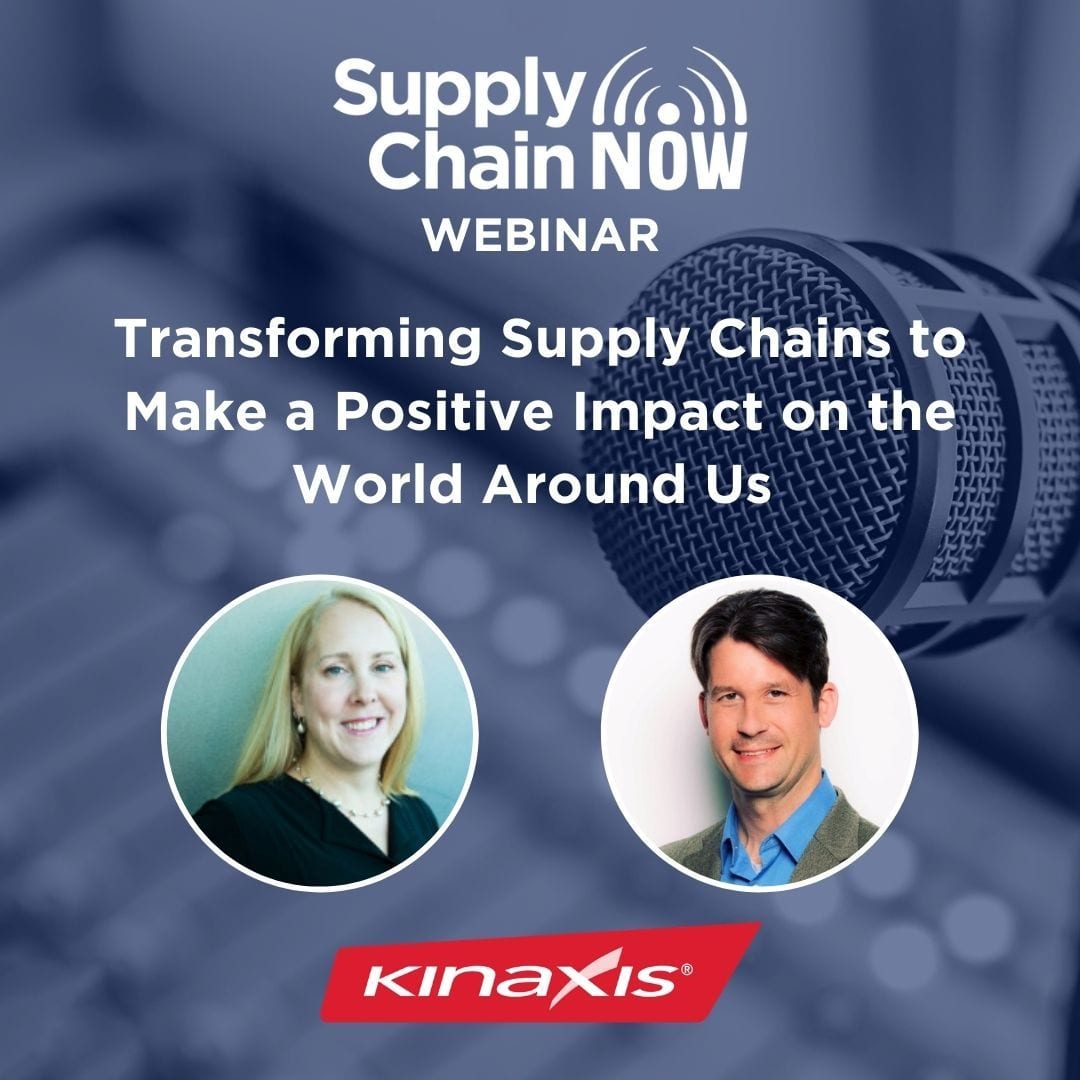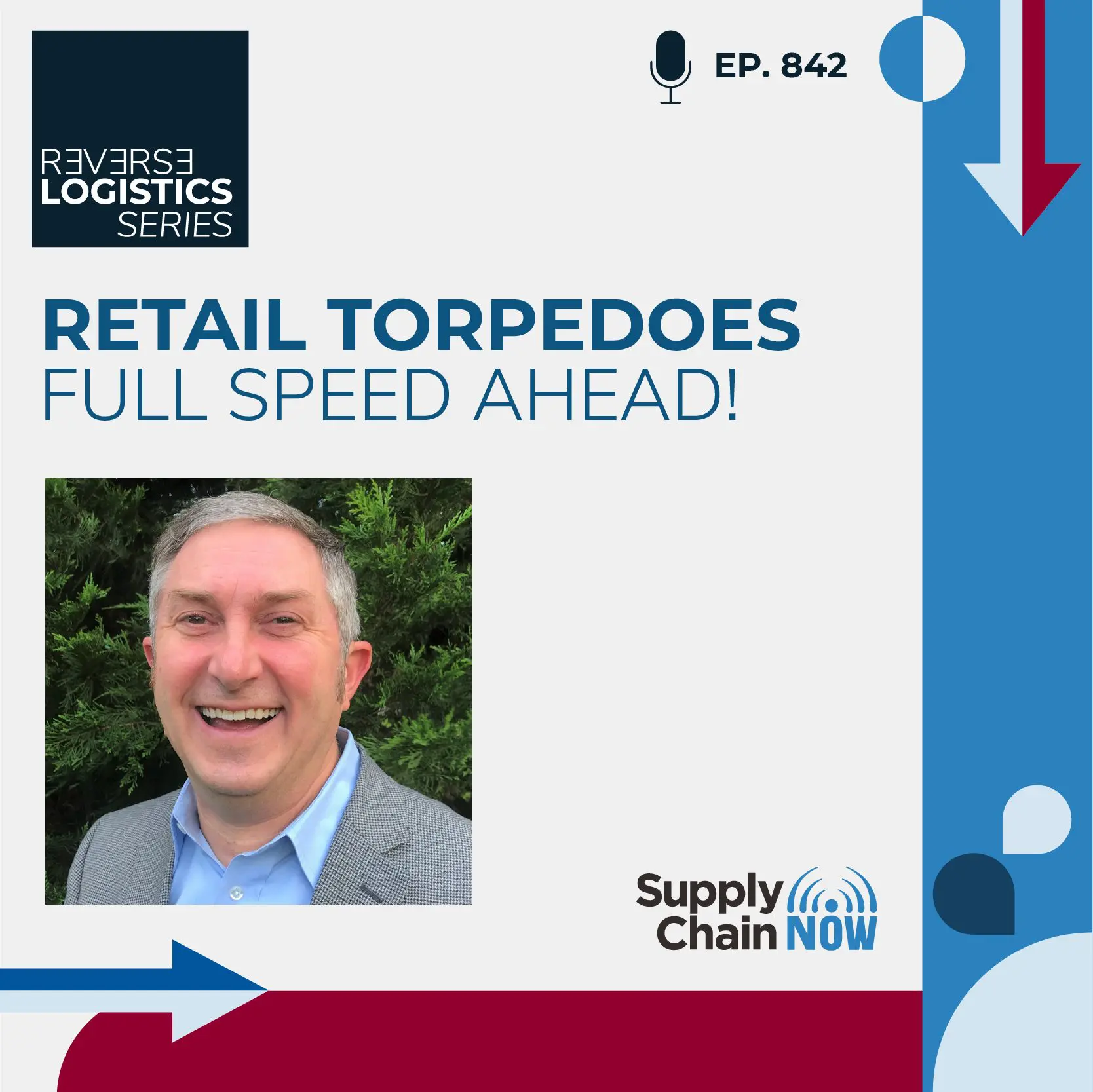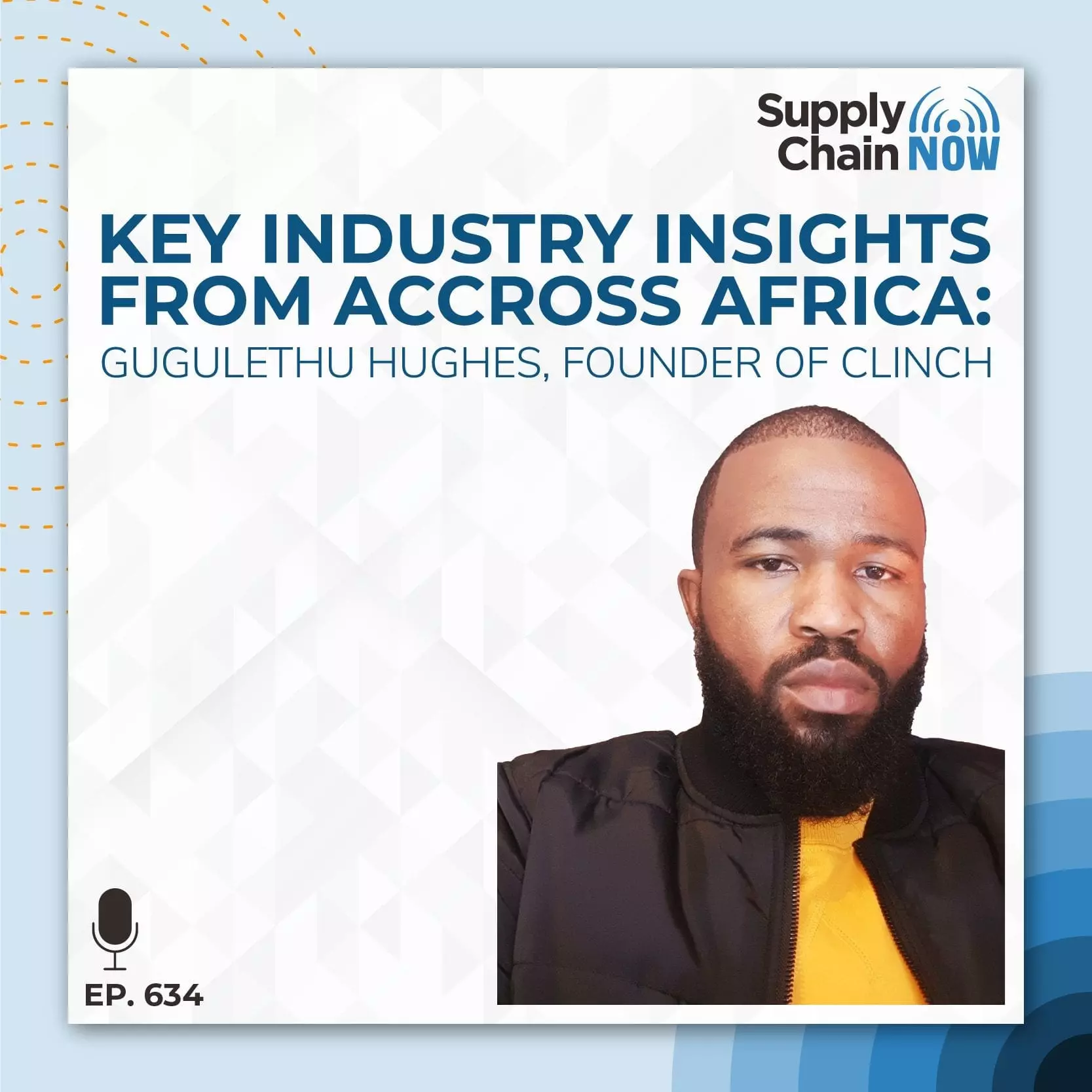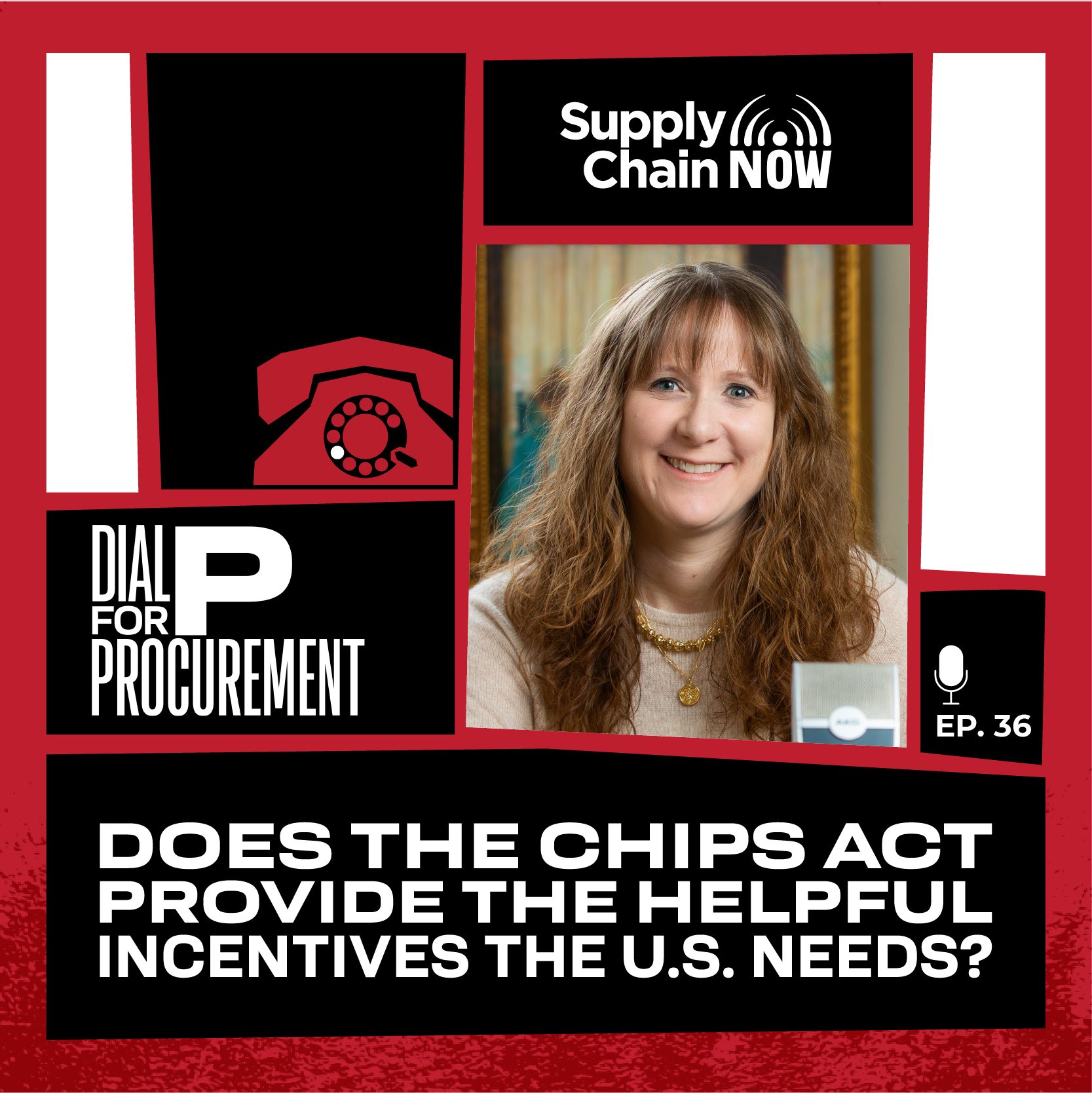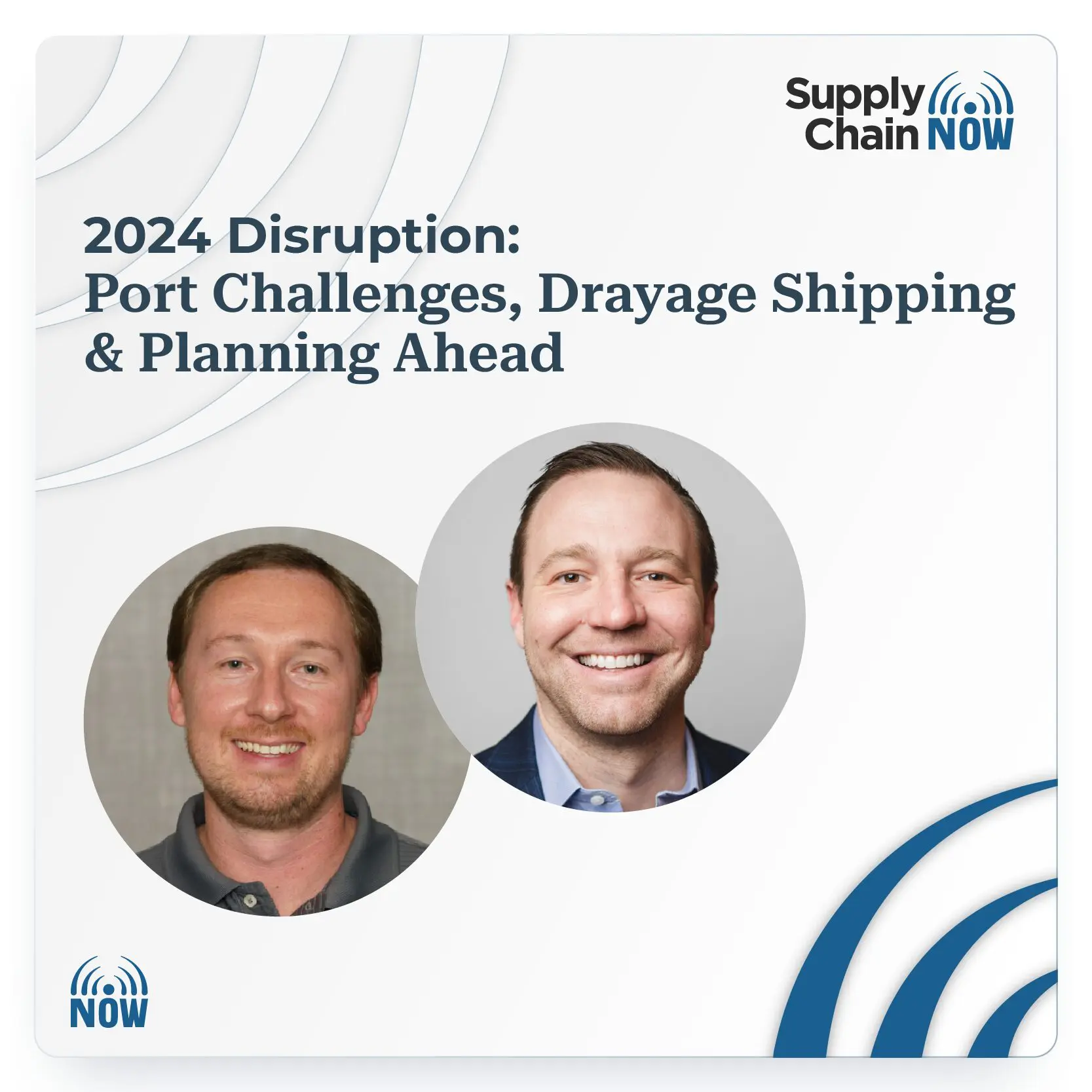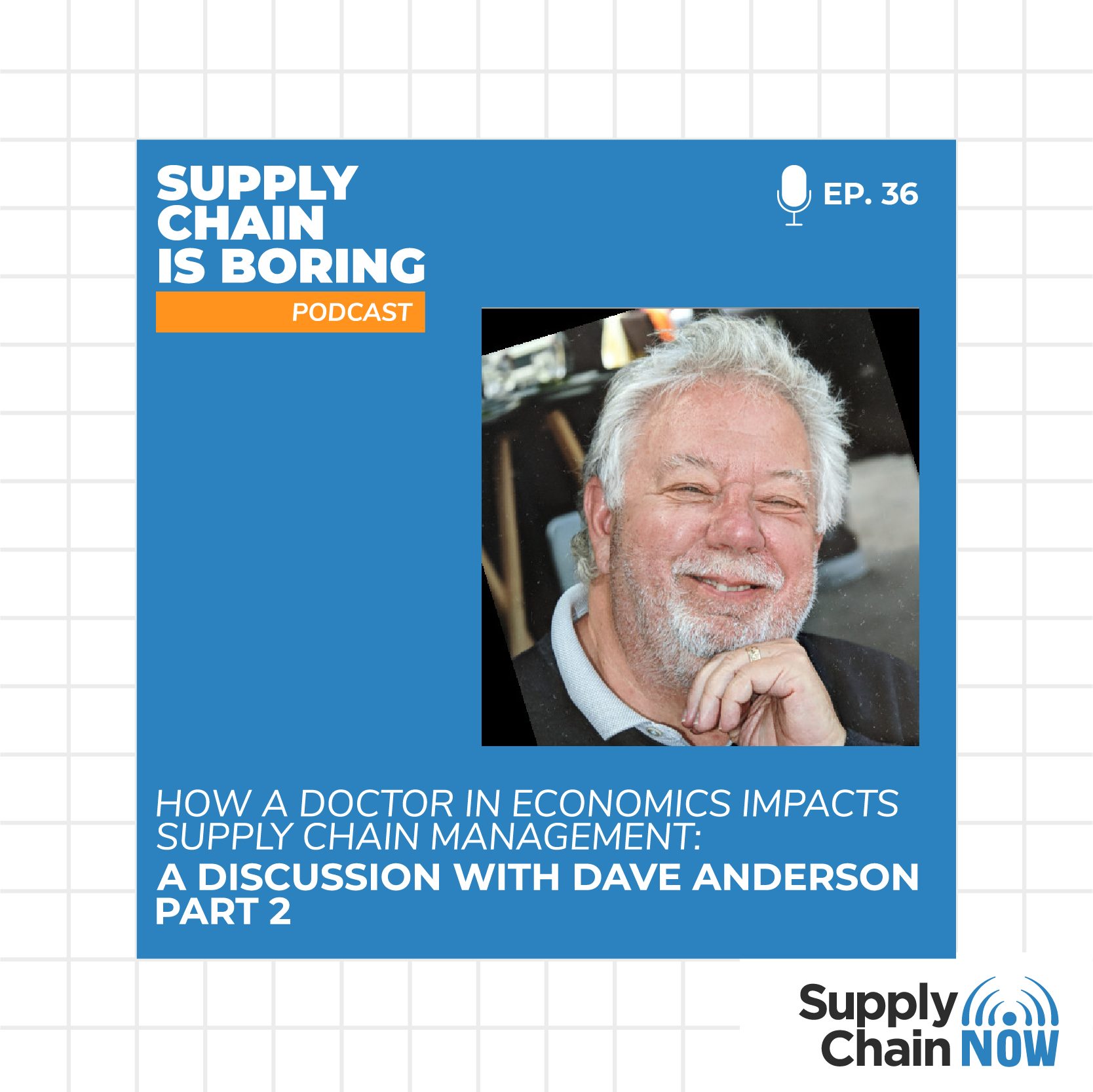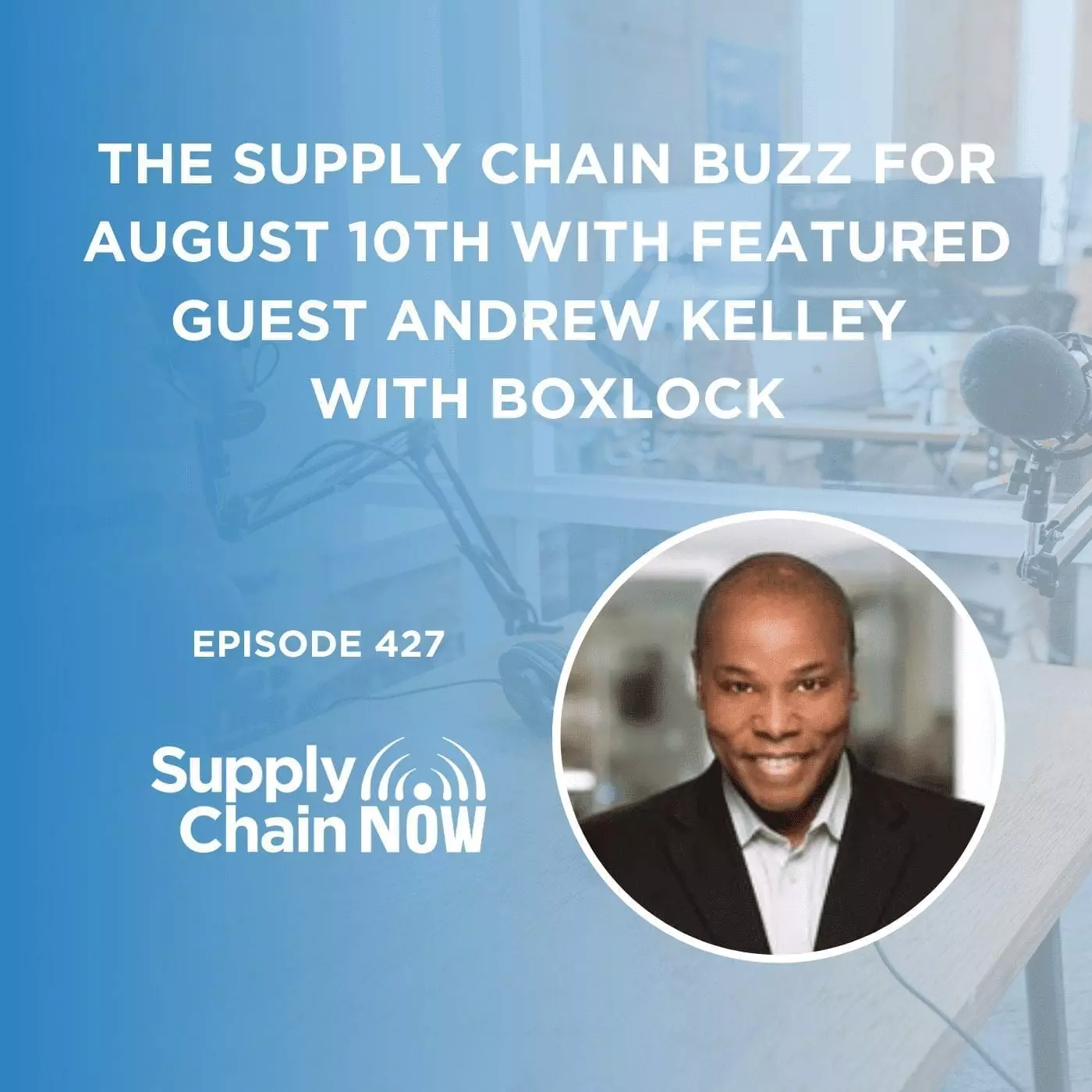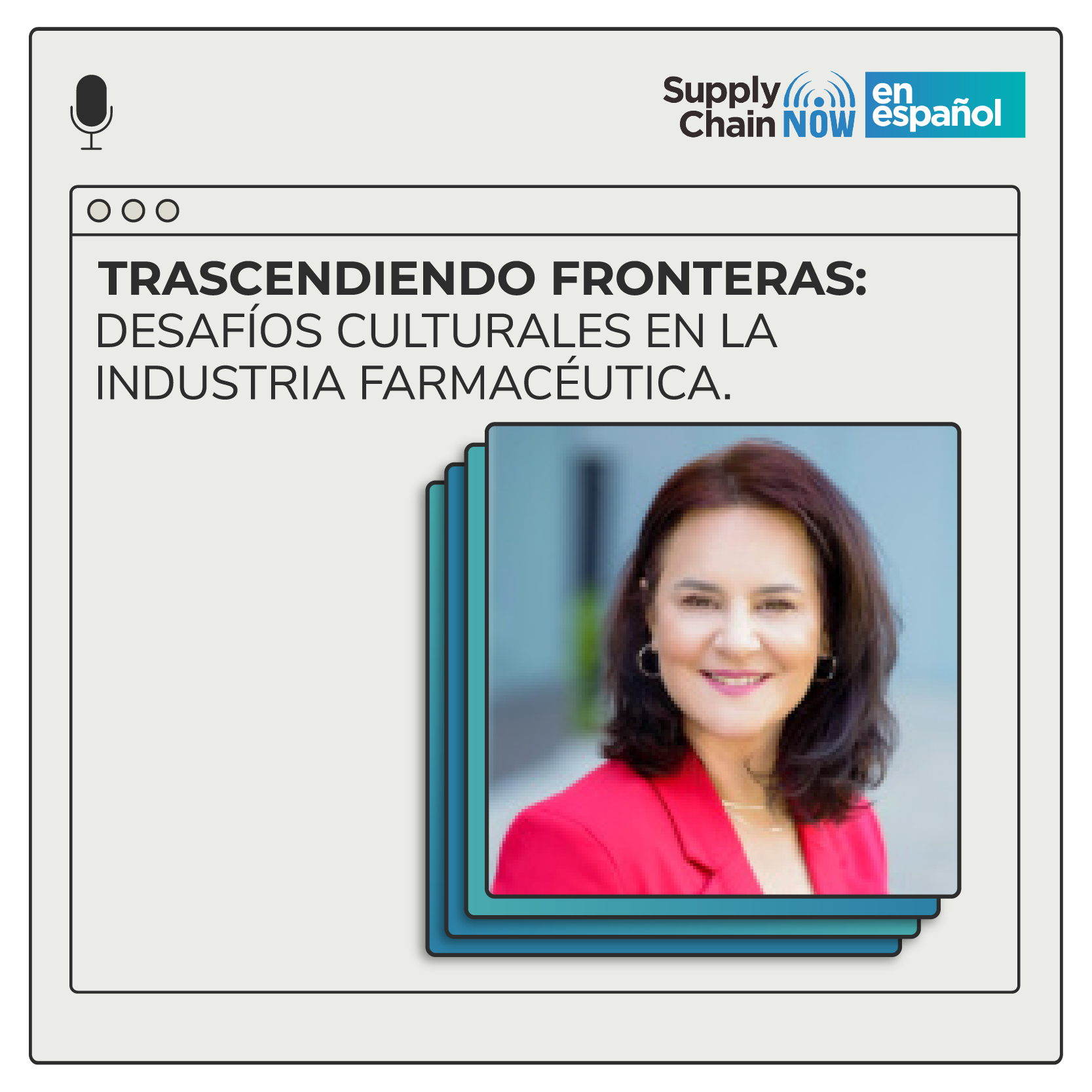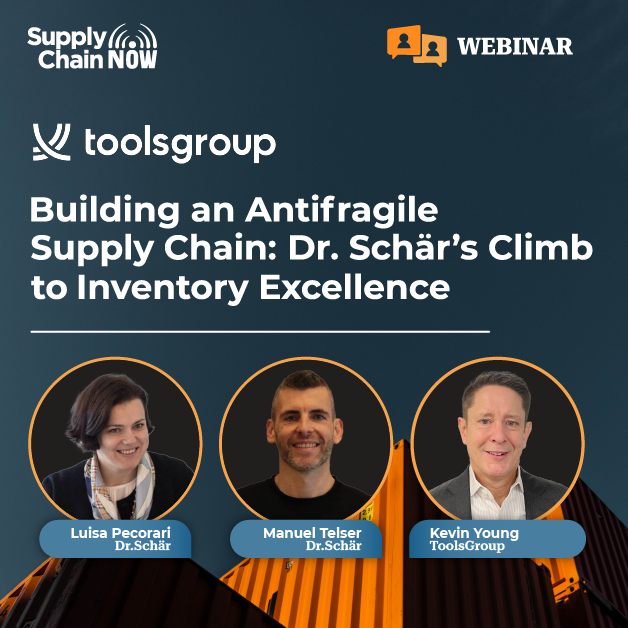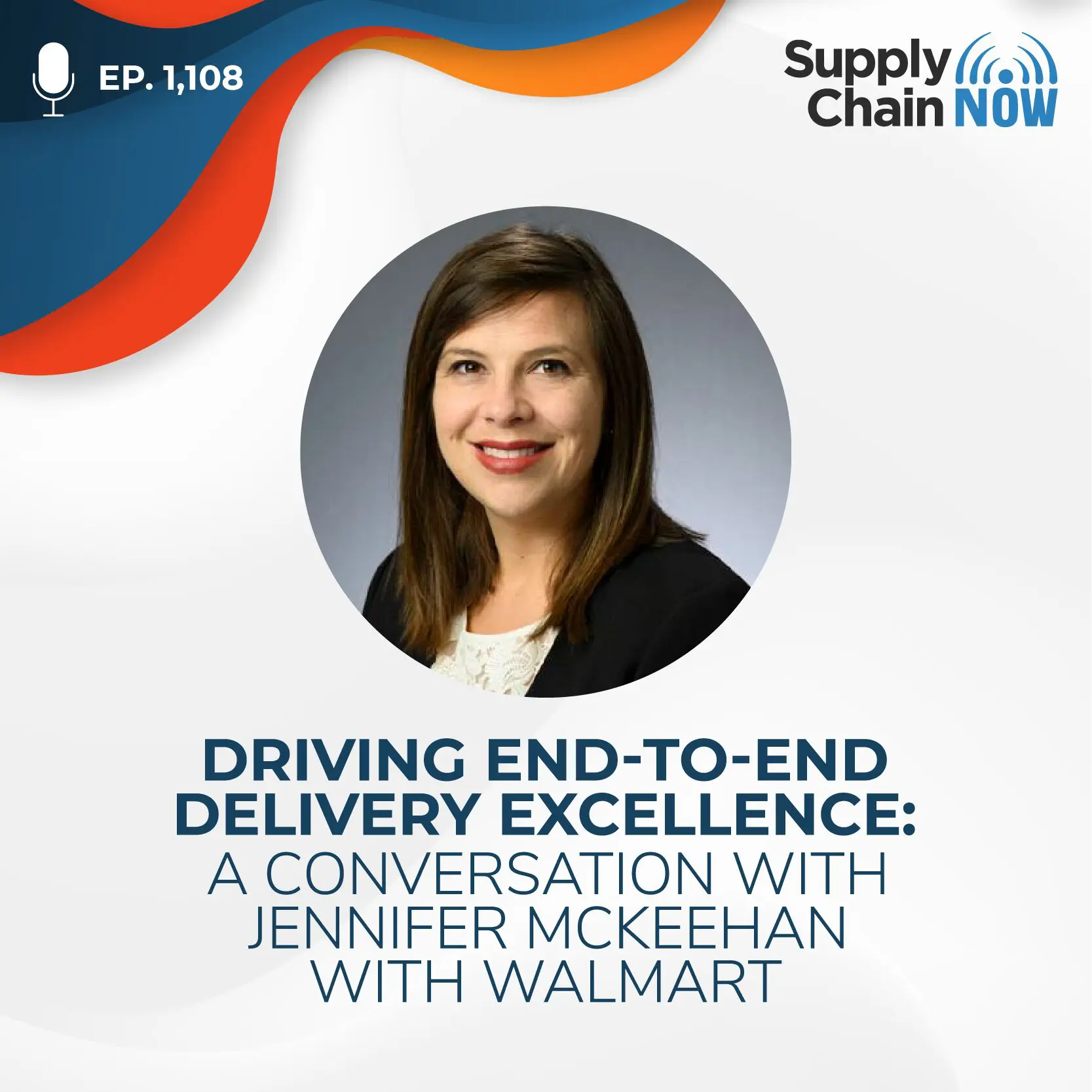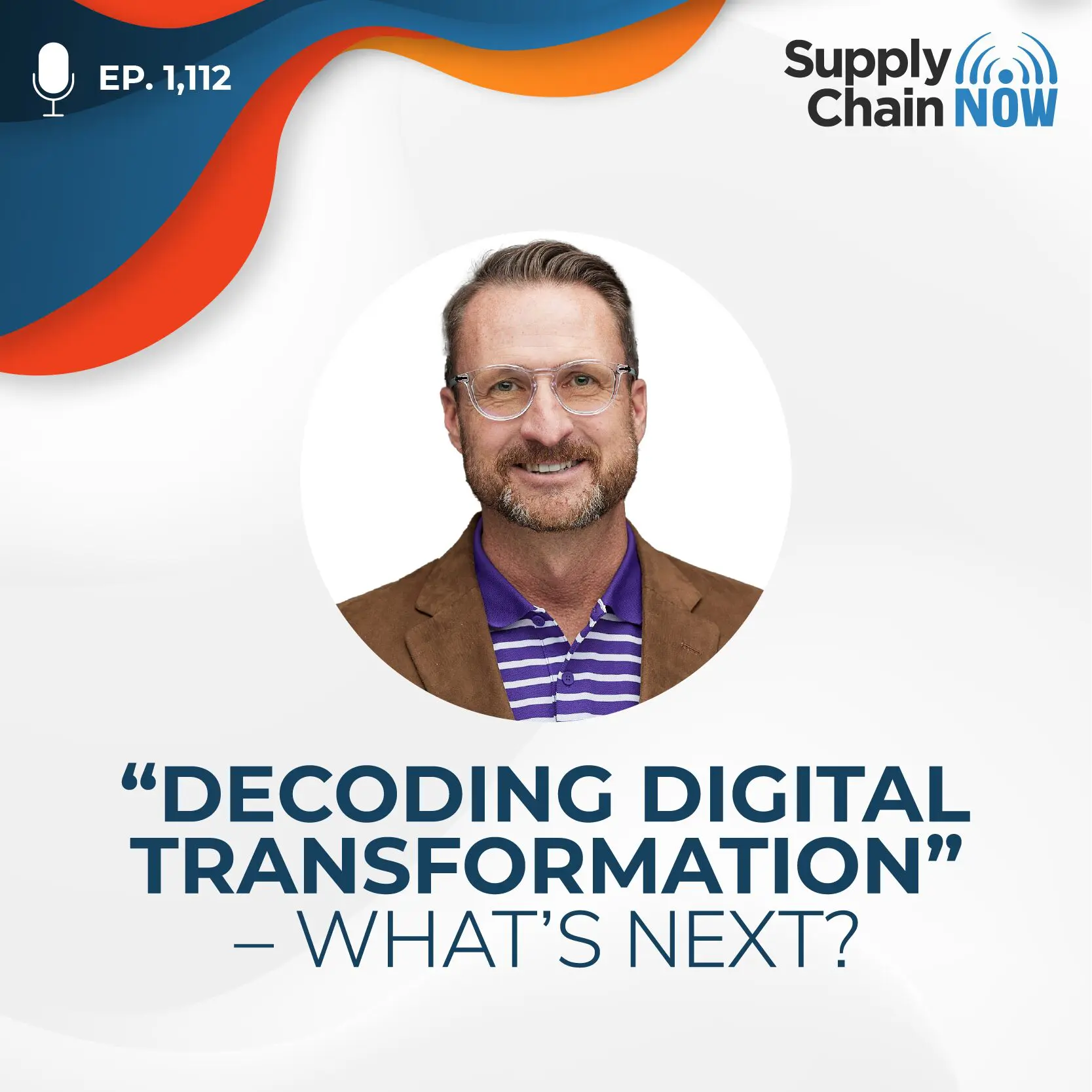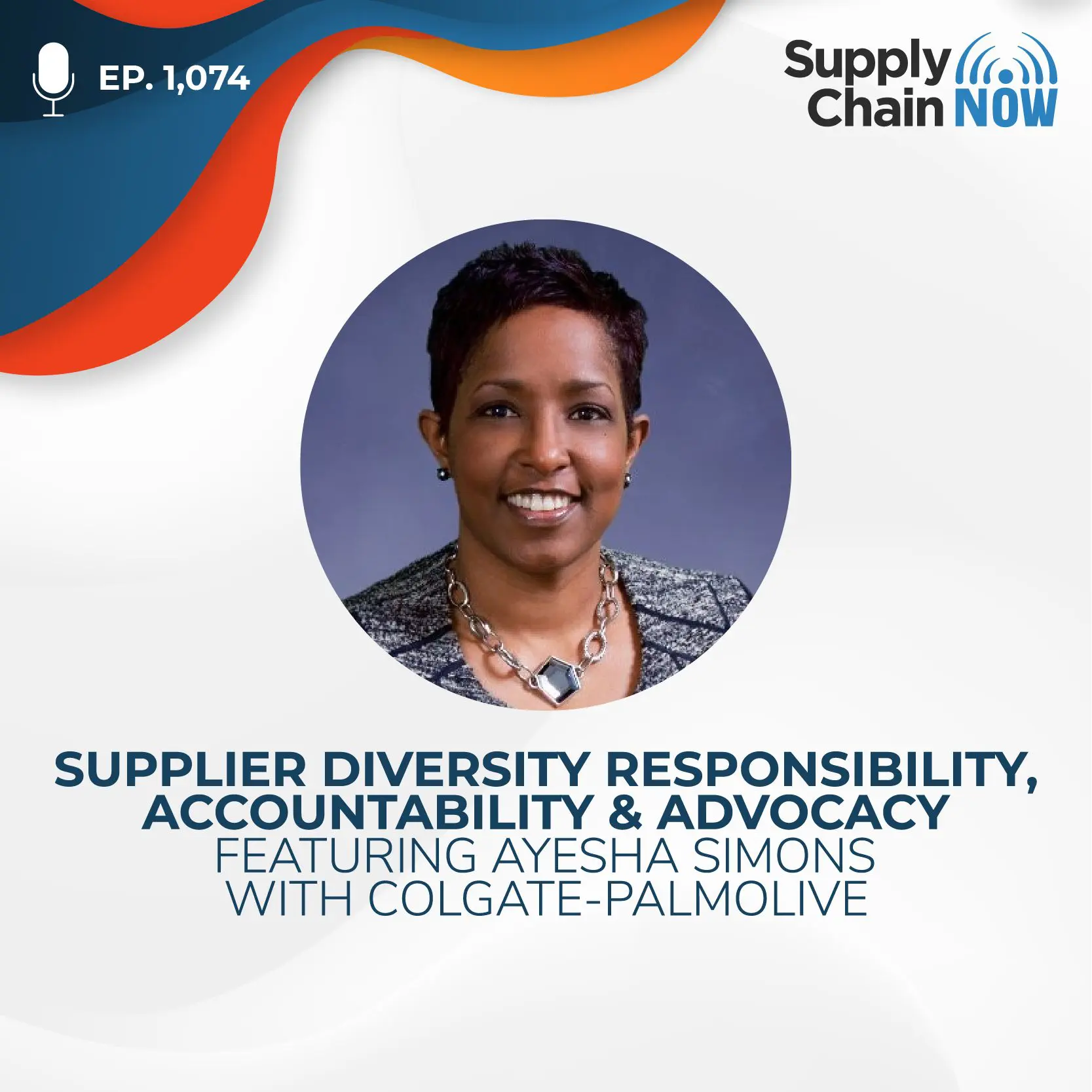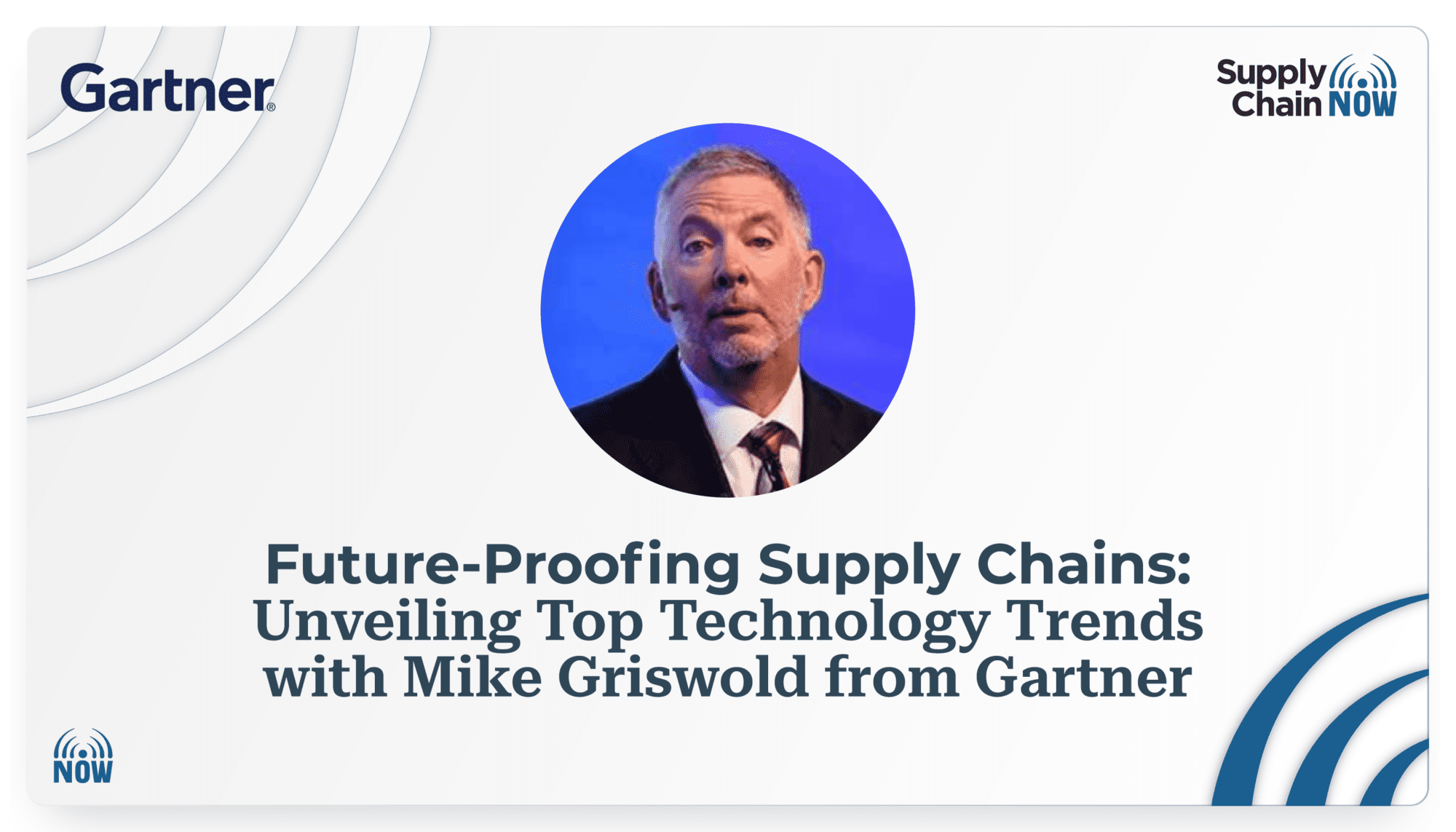
I think the big takeaways are the overall framework around how you think about your technology investments in terms of protecting what you've invested in, thinking about the most pragmatic ways and places to invest, being very clear on what problem are you trying to solve, and then lastly, which I think is becoming probably one of the more important dimensions, is the idea of delivery value.
-Mike Griswold
Episode Summary
Joining us for this episode of Supply Chain Now is Mike Griswold, Vice President of Research for Retail at Gartner. Here, we discuss Gartner’s Top 10 Strategic Technology Trends for 2024 – a list of key innovations that can help organizations accelerate towards their business goals in the fast-evolving age of AI.
Of these 10, Griswold deep dives into the three that he believes supply chain professionals and supply chain organizations need to be most aware of:
#1 – Sustainable Technology: With customers paying ever greater attention to DE&I, environmental and governance practices, one wrong step could have catastrophic consequences. So, how can technologies play a role in enhancing sustainability practices and ensuring enterprises don’t end up in the limelight for the wrong reasons?
#2 – Democratized Generative AI: Goldman Sachs reports that investment in AI globally should approach $200 billion just by 2025. So, how can everyone leverage AI to achieve more and be more successful, not just the technologists? What are the risks, and what are the opportunities?
#3 – Augmented Connected Workforce: One of the biggest challenges facing the supply chain industry is attracting and retaining top talent. So, what role can technologies play in improving competency rates, optimizing the value delivered by human staff, and keeping people excited about their jobs?
Listen to the full episode to find out more about these vital trends, how they interlink, and why they are expected to be so impactful in the supply chain profession in 2024.
Episode Transcript
Intro/Outro (00:03):
Welcome to Supply Chain. Now the voice of global supply chain supply chain now focuses on the best in the business for our worldwide audience, the people, the technologies, the best practices, and today’s critical issues, the challenges and opportunities. Stay tuned to hear from Those Making Global Business Happen right here on supply chain now.
Scott Luton (00:32):
Hey. Hey everybody. Good morning, good afternoon, good evening, wherever you may be. Scott Luton and special guest, Mike Griswold with you here on Supply Chain. Now welcome to today’s show, Mike, how you doing?
Mike Griswold (00:43):
I’m doing great, Scott. It’s great to be with you and Catherine, keeping us honest in the background.
Scott Luton (00:47):
Of course, grateful for wonderful production and facilitation talent here, but you’re in a good position, Mike, because you’re in demand. And so folks out there backed by Popular Demand, one of our longest running and most popular series here, supply chain today and tomorrow with Mike Griswold with Gartner. Mike, how’s it feel to be in demand? That’s a pretty good feeling, huh?
Mike Griswold (01:08):
It feels great. It feels good that there’s stuff that we want to talk about that people want to learn more about. And it’s great that people are interested in these things to help their supply chains get better, which is really why we’re all here, right? It’s how do we make everyone’s supply chain better?
Scott Luton (01:21):
Well said. As always, so many of y’all out there that have caught this show is going on for four or five years. I bet know that Mike serves as vice president and analyst with Gartner, right? And some of our new audience members. Hey, you’re in a great spot. These are great monthly conversations to do what just Mike just shared. Help your supply chains be more successful, help your days day in and day out be more successful. In today’s episode, we’re going to be exploring some of the most powerful technology trends out there impacting global supply chain and beyond. But Mike, before we get to that, before we get to our work that we like starting up with a fun warmup question. And over the years, as we’ve gotten to know you better and better and had tons of fun and had some great conversations, we’ve learned about your love for golf. We’ve learned about your love for basketball and coaching and military history, all the great work you’ve been doing, especially for the supply chain top 25. I’ve enjoyed those as well and so much more. But Mike, what we haven’t really dove into is where you grew up there in Perry, New York. So what’s a couple of things that are inseparable from your childhood growing up there in Perry?
Mike Griswold (02:27):
Yeah, small town, lots of snow during the winter. There’s two things. The first is it has been the home for a long time of archway cookies. So if you’ve ever been in your local supermarket and saw archway cookies, that’s where they originated. There was a big factory there. Lots of people in town worked there. And the second is we had, so Perry’s been around since the early to mid 18 hundreds, and in the late 18 hundreds, I believe, as a way to garner some tourist activity. Perry sits on a lake. They were going to create the silver lake sea serpent. So they created kind of an early version of the lochness monster. It would appear mysteriously and then not appear, and it actually was a pretty good tourist attraction until where they were storing the sea serpent caught on fire. The fire department came, and lo and behold, because what they found, they found the sea serpent, but that spurred every summer.
(03:21):
There was a huge sea serpent week parades. The local high school had a miss sea serpent. We had huge softball tournaments. So the town for a long time was associated with the sea serpent. It’s kind of the unofficial mascot of the town. So archway cookies and a sea serpent. Those are the two claim to fames for Perry. I guess a third one, which actually is probably more relevant for people maybe than the archway cookies is in the eighties and nineties, there was a big athletic apparel company called Champion. So at the time, they made a lot of sweatshirts, sweatpants, t-shirts, they did some NFL jerseys, literally right across the lake from my house was the big champion factory. So cookies, clothes, and sea spets.
Scott Luton (04:10):
I love that. I bet having a factory right there where you pass by every single day and seeing those good people going to work, making good quality clothes, which I’ve had plenty of champion gear over the years. I bet that had a big impact on your worldview, even as a small kid, huh?
Mike Griswold (04:26):
It was mean. It was my first real experience to this idea from a retail perspective of an outlet at the one end of town as you’re heading out of town, there was a big champion outlet where some of the misprinted stuff, some of the stuff that wasn’t quite a hundred percent you could get. That’s the first place where I went in and got a T-shirt with my name put on the back. I mean, it was huge. It was a big deal.
Scott Luton (04:50):
Cookies, clothes, and serpents. Oh my. Yes. That might be the title of today’s episode. We’ll see. Okay, we got to get to work. Mike, I appreciate you. I bet there’s a lot more stories there, but today we’re going to dive into this list that Gartner published not too long ago, the Top 10 Strategic Technology Trends 2024. So what we want to do first, Mike, is I’m going to roll through, just name ’em all 10, right? So folks kind have a sense of the full list. We’ll include maybe a link to go download that in the show notes so folks can check that out. It’s a good little read. And then we’re going to have you pick your three that you’re tracking the most, I’ll call it. Okay? Yes. So here’s the full list. If you’re tracking with us at home AI Trust, risk and Security Management, AKA AI trism, a new acronym of sorts, continuous Threat Exposure Management, also known as CTEM, sustainable technology comes in number three, platform engineering, ai, augmented development industry, cloud platforms, intelligent applications.
(05:48):
This is one of my favorites. I think we’re going to talk more about democratized generative ai. I love that. And augmented connected workforce comes in number nine and number 10 machine customers. Now, Mike, if you remember a few months back, you created quite a stir. Folks. Were loving some of your perspective around machine customers because that’s not something of the future. It’s already here, perhaps, right? So of that list of 10, I think the three that we’re going to dive into, the first one is sustainable technology. So Mike Gartner broke all 10 of these trends into three categories. Some of ’em were in just one, some of ’em were in all three. And those three categories were rise of the builders, protect your investment and deliver the value. And if I’m not mistaken, sustainable technology was in all three. Is that right?
Mike Griswold (06:33):
Yes, it is. Yeah. When people take a look at the graphic, it’s kind of an interesting graphic, right? It’s kind of a Venn diagram on steroids where you’ve got these three areas that you talked about, protect your investment, rise of the builders and delivering value. And some of these that we talk about actually do slide into multiple of these three categories. But I think the big takeaway maybe before we jump into those three, is that overall framework around how do you think about your technology investments in terms of protecting what you’ve invested in, thinking about where’s the most pragmatic way to invest and where to invest. And really, we’ve talked about this a lot, being very clear on what problem are you trying to solve? And then lastly, which I think is becoming probably one of the more important dimensions, is this idea of delivery value.
(07:24):
I think both for supply chain organizations and their partnerships with it, there’s going to be a lot more pressure on what’s the value. I think as we talk about some of these, the challenge is going to be how do we demonstrate the value? How do we capture it, how do we quantify it? How do we distill and discern between quantitative benefits and qualitative benefits, particularly when we talk a little bit about things like the augmented workforce, some of those benefits are going to be more qualitative. How do you value those? How do you convince your CFO that there’s as much value with qualitative benefits as there is with quantitative? So thinking about these through those kind of three lenses I think is going to be important.
Scott Luton (08:06):
Agreed. And just before we dive more into sustainable technology, so folks, again, we’ve shared all 10, so explore that list. Let us know what you’re tracking the most maybe. And then we’ve also covered those three categories. That Venn diagram on steroids, as Mike put, it kind of looks like a serpent a little bit, maybe Mike.
Mike Griswold (08:23):
Yes.
Scott Luton (08:24):
Yes. Rise again. Those three were rise of the builders protect your investment and deliver to value, which certainly the so what, right? Rather than chasing the latest, greatest technology, what’s the impact it can have on the business certainly is becoming bigger conversations in boardrooms. So sustainable technology. That’s going to be the first one we dive a little deeper on. So tell me, Mike, why did it make the list and what impact do you see it having now and in the future?
Mike Griswold (08:47):
Yeah, it’s interesting. When we were thinking about the list for today, and I was taking a look at it, I was trying to focus it really on those things that are most likely to be of interest and or impact the supply chain. There’s certainly things in there around cybersecurity and platforms and all those types of things that certainly Greg is well versed in from a technology perspective. But the three that I honed in on are really ones that I think supply chain professionals and supply chain organizations need to be aware of. And the first one is really around sustainability. We have a practice within the supply chain that looks at sustainability for supply chains. But what we’re also seeing, and the reason that I picked it is we’re also seeing other areas of Gartner talking more and more about supply chain. That could be the manufacturing folks, certainly the IT folks are becoming much more interested in sustainability, particularly in areas around data centers.
(09:47):
But why I think supply chain folks need to be interested in this is this sustainable technology. When you look at the note really is around three facets. It’s around social, so things like de and i, human rights, it’s around the environmental, which people tend to think of when we talk about sustainability, water, energy, biodiversity and so on. But there’s also a third element to this, which is governance, and that’s everything from compliance reporting, all those types of things. As we talk to chief supply chain officers, I think there’s kind of two things going on. There is external pressure being put on chief supply chain officers to understand what does it mean to have a sustainable supply chain. But we’re also seeing this start to drift a little bit out of the top priorities for CEOs, which I think is a risk because of some of these elements that we talked about.
(10:43):
All you need is one de and I misstep, right? And your organization is going to be on the front page of the paper for all the wrong reasons and one human rights violation. We saw that with some apparel retailers several years ago. So I encourage chief supply chain officers to find ways to continue to educate your CEO around why this needs to remain a top priority. Certainly things like geopolitical concerns and risk concerns and inflation concerns. Those certainly can and should stay top of mind, but we can’t lose sight of the fact that there are extremely interested external constituents, not the least of which are customers and suppliers that pay attention to what you do in this area and needs to be a focus. And we’re starting to see technology play a role in helping this, both in creating a utilization of technology to make you more sustainable, but also technology that’s helping on the governance and reporting side. So those are some of the reasons, Scott, that this landed for me at least out of the 10 was the one that I thought we wanted to spend some time on today. Love it. And going back to what you said
Scott Luton (11:52):
About halfway through your response there, I know everyone wants the limelight, everybody wants the spotlight, but you don’t want it for the wrong reasons. And exactly as we’ve talked about before, when you don’t see global supply chains and their leadership on the front pages, a lot of times that’s a good thing. It means things are working. Exactly. All right, so that’s just the first one. Sustainable technology folks, y’all check that out there. The second one, I can’t wait to get your take on. I just love how we phrase this. We’ve been talking about democratization for years. It’s one of my favorite movements in supply chain and in business in humanity for that matter. So democratized generative AI folks, Goldman Sachs reports that investment in AI globally should approach $200 billion just by 2025. That’s just around the corner. But one of the big questions that’s growing out there, and we just kind of touched on a little bit, a version of it a minute ago, one of the big questions that’s really growing and you’re hearing more is getting amplified across the globe is how can everyone leverage AI to achieve more and be more successful, not just the technologists and the technically oriented people I guess I’ll call it.
(12:52):
That’s one of the questions of our time. So Mike, why did it make the list or why are you tracking and what impact are we going to learn more about here now and moving forward?
Mike Griswold (13:01):
If you have any lists and it doesn’t include AI in some form or fashion, people are probably going to dismiss the list because it is such a hot topic and it’s making its way into all facets of the organization. I think the democratization is really happening for three reasons. The first is there has become a pretty low, if any, even existing barrier to entry pretty much anyone can create and compose literally anything using AI chat, GBT and so on digitally. So it’s available to everyone. It’s starting to provide the opportunity for things like cost reduction, improving experiences and productivity. I think the watch out though is there can be a sense in an organization that AI becomes kind of the wild wild west where you’ve got lots of different people doing lots of different things and what we suggest and what we’re starting to see organizations do is have a deliberate and purposeful approach around how do they want to approach this.
(14:05):
I think the democratization is kind of one of those kind of good news, bad news types of ideas around generative AI in particular. One of the risks is because we democratized it whether we want to or not, there’s the risk of can I potentially put some confidential information into chat GBT? I want it to give me a better answer. Well, now that’s out there available for anyone. You’ve got chat GBT just generating bad answers. These things I think they refer to as hallucination, which is interesting because it’s not really a person, but yet it’s somehow is elucidating. So I don’t know where that came from, but you’ve got that. You’ve got just the mystery of the black box. Now the good news or the positive to this that happens out of democratization is we definitely see productivity in the workforce. We start to expand the skillset both by accident and on purpose.
(15:01):
People start as you use this type of technology more, you become more familiar with it, your skills tend to grow. It’s an opportunity for innovation within a broader ecosystem. So the democratization I think in general is a really good thing for us, but we have to go into it with our eyes wide open around some of these risks and pitfalls and figure out how do we take advantage of this within some structure. You have to have some structure around this, and I think where organizations I think are starting to move is from a place where let everyone kind of play around with it and see what it could do to let’s let everyone play around it so we understand what it can and could do, but now let’s kind of harness it within some structure, some governance, and let’s deploy it much more tactically and surgically. And it’s that piece I think that we’re still working through frankly around what are the best use cases for this. If we think about those three lenses, where is this going to deliver value? Those are things I think everyone is still kind of working through, but we’re now from a point where it’s not just the data scientists that we’re working on this, the general population is now thinking about
Scott Luton (16:15):
This. That’s like a certification in the last few minutes there folks. Hopefully y’all enjoyed as much as I have, but Michael, I want to get you to respond to something. Inevitably, there’s some folks out there, maybe they’re at organizations that hasn’t jumped on and are doing all of those things you described with ai, given the golden opportunity that there is. This might scare a few folks, I don’t know, but there’s a lot of folks out there, analysts, leaders, technologists that are already pointing to, even in this golden heyday of AI that’s becoming commoditized and it’s no longer enough just to have it. It’s how you use it, which is you’re describing using it very purposefully to then create that competitive advantage. Respond to that a little bit there, Mike.
Mike Griswold (16:53):
This is probably a great analogy, and I’m sure if Greg was on, he would have a better analogy that I’m going to give. But to me, this looks and feels a little bit like the early stages of the internet where we had this vast wealth of data that we were able to now access and everyone could access it, but also everyone could kind use it the way they wanted and they could in some ways kind alter the output to kind of fit whatever narrative or whatever story they were looking to tell. And I think it wasn’t until we started to be able to fact check the data, be able to ensure that we had more accurate data within this thing we called the internet that we really started to see how can we use this. If you think about early days of the internet was tell me stuff right now the internet is like, I want to sell stuff, I want to buy stuff, I want to do all kinds of other things.
(17:53):
It’s like a natural kind of evolution. And I think we’re going to see the same thing around this topic. I think there’s still a lot of searching and playing and trying to maybe see what do the outer limits of this look like? How far can we push the envelope around this? And then realize, okay, now we need to reel ourselves in and think about the practical applications. We went through the same thing with the internet, and now I think we’ve gotten really, really good at the practical applications of the internet with things like transactions and buying and selling commerce, that kind of stuff.
Scott Luton (18:30):
Agreed.
Mike Griswold (18:30):
I think we will be at the same place at some point with this whole idea of generative ai. My sense though is there is so much more power in generative AI generally than we had with the internet that I think it’s going to take us longer to go through that learning curve. It’s going to take us longer. And frankly because it’s more powerful and it’s been more democratized, frankly, I think it’s going to be more painful than the internet because potentially, right, if we respond to say a hallucination like I described, that could be bad if we have copyright issues or we put data out there that we didn’t intend to, I think the learning curve is going to be a little bit more painful than maybe our learning curve around the internet.
Scott Luton (19:22):
I think that’s a great analogy, right? A great analogy, and especially where you ended towards the end of it. If we think about the internet and we think about all the different ways it grew in practical and powerful usage, but at the same time, we all are familiar, I don’t have to share anyone out there, the rise of bad actors, leveraging, of course, all things technology for cybersecurity attacks and everything else, the dark side of ai, and I mean, we’re already seeing it. We’re already seeing bad actors leverage modern technology, ai, gen, ai, you name it, to do bad things. So I think that’s a great analogy with the rise of the internet. So Mike, hallucinations, hallucinations, technology, have hallucinations. I can’t get over that. The third one today. Hang on sec, one more thought though, because folks, y’all should check out this full list because they’re all interconnected.
(20:06):
And before I leave ai, I want again point out that AI trust risk and security management, that AI trism we talked about. Y’all, check it out, Google it, learn a lot more as we look to mitigate, you’ll leverage and harness the power and then mitigate all the risks that come with it. Okay, number three, Mike, augmented connected workforce. The summer theme to our last trend, power to the people unleashing the human factor. Some of my favorite things to talk about, the Gartner piece points out that Merck has seen big time gains leveraging this, and in this area reportedly redirecting 70% of subject matter expert time from non-value added work to creating real value. Now, as we all know, once you waste time, you ain’t ever ever getting it back. It’s gone, right? So tell us, in your view, Mike, why is augmented connected workforce on your radar and what’s the impact it’s having today moving forward?
Mike Griswold (20:57):
Yeah. The other thing, if I kind of jump to the end of the story first real quickly in that same, you mentioned Merck, there’s also in that report, a great writeup on Home Depot for our retailers out there. Home Depot is doing some great things around bringing technology out to the sales floor, both from this idea of task management, but also from an e-learning perspective. And it’s pretty cool some of the stuff that Home Depot is doing. But I think this topic, and the reason I picked this is we’ve had numerous conversations around the general topic of talent and supply chain talent, the challenges that we’re having in terms of bringing people into the supply chain as a career, once we get them challenges in retaining them. And I think part of this augmented connected workforce is really this convergence of technology, some of what we just talked about around chat GBT and generative AI in general, but also the fact that we have to figure out how do we continually enhance the experiences, whether that’s people in a manufacturing plant, people in a warehouse, or people even in an office.
(22:04):
And one of the things that we’re finding with this idea of augmentation and connection is an acceleration of skills that are required regardless of job. So some of those generative AI skills, some of those other kind of practical hands-on skills are now starting to come together. And the other thing we’re finding, when I mentioned earlier this idea, the priorities of CEOs and chief supply chain officers, part of their challenge is how do I get those people that I’ve managed to attract and retain in my organization? How do I get them up to speed more quickly? And we’re finding this augmentation and this connectivity that we can give people is actually producing people at higher competency rates for their particular jobs more quickly. And we’ve also seen just the advances that are happening in not only workplace automation, so through virtual reality and augmented reality, but also through ai.
(23:01):
And one of the byproducts that we’re seeing out of AI is we are potentially asking people to make harder decisions, more complex decisions, and we want them to make them faster. So we’re going to need this augmentation from things like machine learning and AI to help our associates do that. So really what we’re seeing is we start to look at this idea of associate engagement and how do we keep people excited about their job is really this connection between the digital and the physical world and how does that manifest itself in worker experience? And that’s everything from some of the stuff that Home Depot is doing, which is bringing technology right out to the sales floor to automation and different things like that. So what we’re talking to chief supply chain officers about is a couple of things. One, it’s the requirement to embrace technology as a way to help people make better decisions faster, but also as a way to enhance their experience with things like virtual reality, augmented reality. So people say, don’t have to go maybe to a manufacturing plant to learn how to run a piece of equipment. They can do that virtually. But we’re also finding that there is these emerging generations of workers that have grown up on iPads and iPhones, smart devices, they’ve grown up interacting with those devices and they don’t see or don’t feel there should be any disruption between using those devices in their personal life and using those devices in their work environment. You everything
Scott Luton (24:39):
Seamless,
Mike Griswold (24:40):
Right? Seamless. If I can ask Siri for a recipe, why can’t I ask Siri for what are the five most important purchase orders I have to work on today, right? It’s those types or Alexa, I don’t want to offend any Amazon people. Those types of conversational types of activities that happen all the time. Think about the navigation within your car. I need to go to point A, tell me how to get, there could be no different than a virtual experience for someone picking things in a warehouse. So it’s this connection and this convergence of technology. And if I think about other industries, other industries don’t have this dichotomy of people that have to do physical stuff, warehouse people and people that live in an office environment. If I have a bank, everyone is in an office or maybe I have people that are tellers, but I don’t have someone picking cases all day and another person trying to do demand planning. So it’s our industries, the consumer products industry, the retail industry, the healthcare industry where we’re going to see these convergences happen and people just have to figure out how we’re going to make that work.
Scott Luton (25:56):
Man, I love the picture you’re painting and going back to the beginning of your, really the theme throughout your response there, and I love your focus for years from all of our conversations on talent and corollary to that is your focus on the the associate, the team member experience that unfortunately still, I think we’ve made some gains in getting leadership and the C-suite to really focus on that more and how important it is, but we still got some ways to go to reach everybody. So I love that big part of your answer there. Okay, Mike, you’ve kind of inserted this into I think all of your responses, and that’s all your conversations you’ve got with supply chain leaders around the globe, and that’s where we want to start to wrap today’s conversation. So it’s been about a month or so since you joined us last time, as you’ve chatted with those movers and shakers and makers out there across globe, what’s been a cool key takeaway from a recent private sidebar, I’ll call it discussion.
Mike Griswold (26:48):
I might’ve touched on this last time when we were together, and if I did,
Scott Luton (26:51):
We’ll double down.
Mike Griswold (26:53):
We’ll double down. We had some research from a month or so ago that we published around this idea of turnover. And I think it does come back to this democratization and it comes back to this augmented connected workforce, but I think there has been a school of thought that says people are going to leave and there’s nothing I can do about it, and I’m going to do everything I can to kind of keep people to stay so I don’t have to worry about turnover. What our research tells us is that’s a losing proposition. People are going to leave for lots of different reasons. We have this idea of regretted and non regretted people leaving the organization. And I think what our research tells us is you’re going to have regretted turnover. You need to figure out how to embrace that. How do you create a culture where that’s going to happen?
(27:39):
And it’s okay, but how do you create a culture for what some organizations call alumnis? What we at Gartner call boomerangs, right? How do you create an environment so that when that person leaves to go on and kind of grow their career, that coming back is an option, right? And coming back should be something that that person should be thinking about. Maybe I need to leave the organization for three to five years to gather some more experiences with an eye towards coming back to my organization at a different level and having more to offer potentially. And what we’re finding, the reason I put that, Scott, is kind of the preamble, is we’re starting to get traction with that research. We’re starting to get people to say, you know what? I am going to stop banging my head against the wall and trying to get people to leave, and I’m going to reframe how I think about turnover.
(28:24):
I’m going to reframe it from the standpoint that it’s going to happen. Yes, I want to try to minimize it, but when it does happen, we’re going to figure out why. And if there’s some systemic challenges in the organization that are encouraging people to lead, then obviously we need to address that. But you’re also going to have just high performing people that want a new experience, and it’s nothing that you did. They’re not running from something, they’re running towards something, which I think is a big difference, and people moving towards stuff. In some ways, that’s what you want. You want people to grow, and then ideally they can come back with that growth and provide even more value for your organization. So that’s one of the things that’s been a really hot topic for us the last month or so.
Scott Luton (29:06):
I love it. The phrase that comes to my mind is talent management for the future and not talent management. Like it’s 1987. Not to pick on that year, but you know what I’m saying there, Mike? Yes. Because we’re not going back to that. These shifts have taken place on a variety of different ways as you’re alluding to, let’s lean into it, right? Give the people in many cases what they want.
Mike Griswold (29:24):
Yeah. The last point I’ll make because there’s been a lot of this in the news recently, is one of the things that we’re finding around this idea of embracing turnover is to not be shooting yourself in the foot with things like your return to work policy. There has been a ton of press around now that covid is in the rear view mirror, more and more organizations reverting to, you have to be in the office and mandating that and all I can tell anyone that’s going to watch this, that is not a good idea. It is counter to all of our advice, and it’s counter to all of our research, this idea of hybrid workforce, flexible location, figuring out what works best in a collaborative in-person environment, and be very mindful around doing that, versus, I need you to be in the office four days a week because I said so, because I said, so. Doesn’t work when you’re a parent. For me, it doesn’t work when I’m a grandparent, so it’s not going to work for you as an employer, so let’s not shoot ourselves in the feet.
Scott Luton (30:24):
I love that. And folks, that’s not opinion, as Mike mentioned, that’s data-driven, research driven. So take that to heart. Okay, Mike, each time you join us every month, we showed just a tip of the iceberg in terms of the great value that you and the Gartner team deliver and have been delivering for a long time. Two part question, what’s coming up next at Gartner and how can folks connect with you and the team?
Mike Griswold (30:44):
Let’s do the easy one first. LinkedIn or email, those are the easiest. And the other one’s not hard, but our two flagship symposium events are not that far away there. First week of May, first week in June, Orlando and Barcelona Respectably would encourage everyone to see about joining us there. We set records every year in terms of the number of people, and I think it’s because we have really, really good content. We have an exciting keynote plan this year around what’s on the horizon for supply chain as we look at the next two to five years. So encourage anyone with any interest, this is the marketing speaks. Alright. Catherine will love this, right? The world’s greatest gathering of supply chain professionals, but it is, I hope people know I try to be objective when we are together, but it’s hard to be objective around that because it is the world’s largest staff, supply chain professionals,
Scott Luton (31:30):
Been there, done it. It’s very accurate. And folks, tremendous value. If you decide to carve out the time, make the investment, be there, you’ll connect with folks, you’re going to hear ideas and not just stuff that global supply chain, global business talks about for years and years. New ideas, especially from companies and leaders that are doing it that can answer the so what. Okay, so Mike, always a pleasure. Really have enjoyed this chat, man. I’ve got my 17 pages of notes, as always, when we sit down with you. Big thanks for you joining us once again, Mike Griswold, vice President Analyst with Gartner. I look forward to next month. Mike.
Mike Griswold (32:03):
Me too. Thanks for having me.
Scott Luton (32:05):
You bet. Okay, folks, the on is now on you. We’ve gotten several truckloads of brilliance once again from Mike who joins us every month. I tell you what, tremendous value. But now the owner is on you to take something. Take one thing he said, put it into action. Hey, maybe it’s time to revisit your back to work strategies, right? And lean into the research and the data and where we are today, not where we’ve been 10 years ago, but whatever you do, Hey, I challenge you on behalf of our entire team here at Supply Chain. Now, do good, give forward, be the change that’s needed. And with that said, we’ll see you next time, right back here at Supply Chain now. Thanks everybody.
Intro/Outro (32:41):
Thanks for being a part of our supply chain now, community. Check out all of our programming@supplychainnow.com and make sure you subscribe to Supply Chain now, anywhere you listen to podcasts. And follow us on Facebook, LinkedIn, Twitter, and Instagram. See you next time on Supply Chain. Now.
Featured Guests

Mike Griswold serves as Vice President Analyst with Gartner’s Consumer Value Chain team, focusing on the retail supply chain. He is responsible for assisting supply leaders in understanding and implementing demand-driven supply chain principles that improve the performance of their supply chain. Mr. Griswold joined Gartner through the company’s acquisition of AMR. Previous roles include helping line-of-business users align corporate strategy with their supply chain process and technology initiatives. One recent study published by a team of Gartner analysts, including Mike Griswold is Retail Supply Chain Outlook 2019: Elevating the Consumer’s Shopping Experience. Mr. Griswold holds a BS in Business Management from Canisius College and an MBA from the Whittemore School of Business & Economics at the University of New Hampshire. Learn more about Gartner here: www.gartner.com
